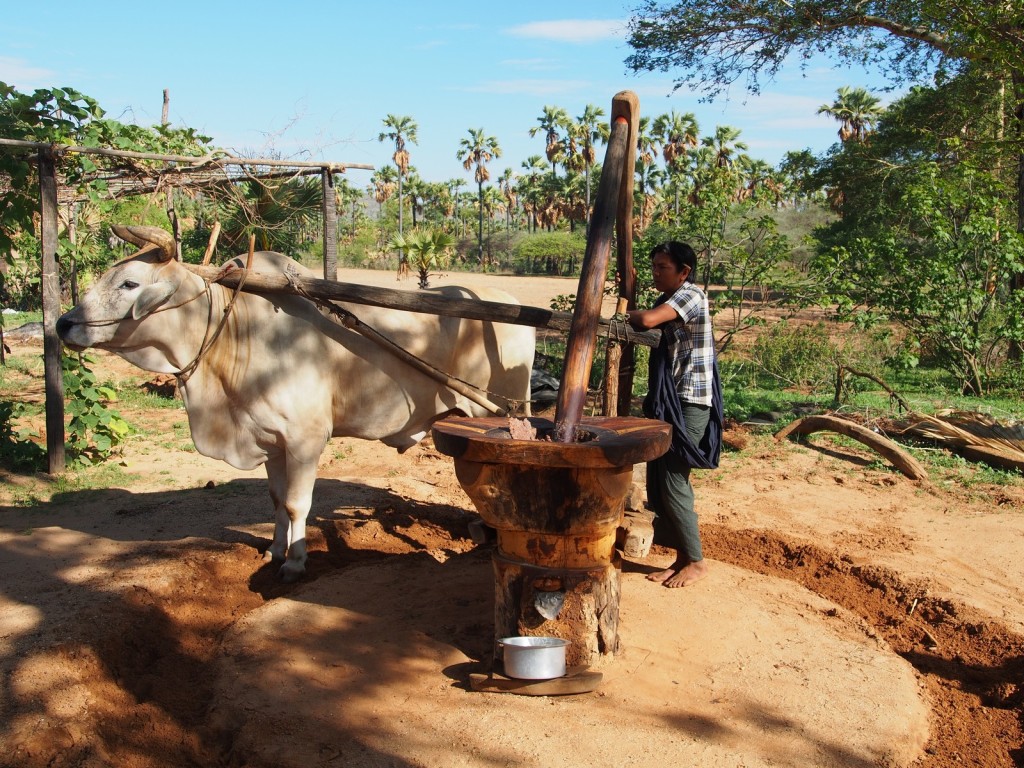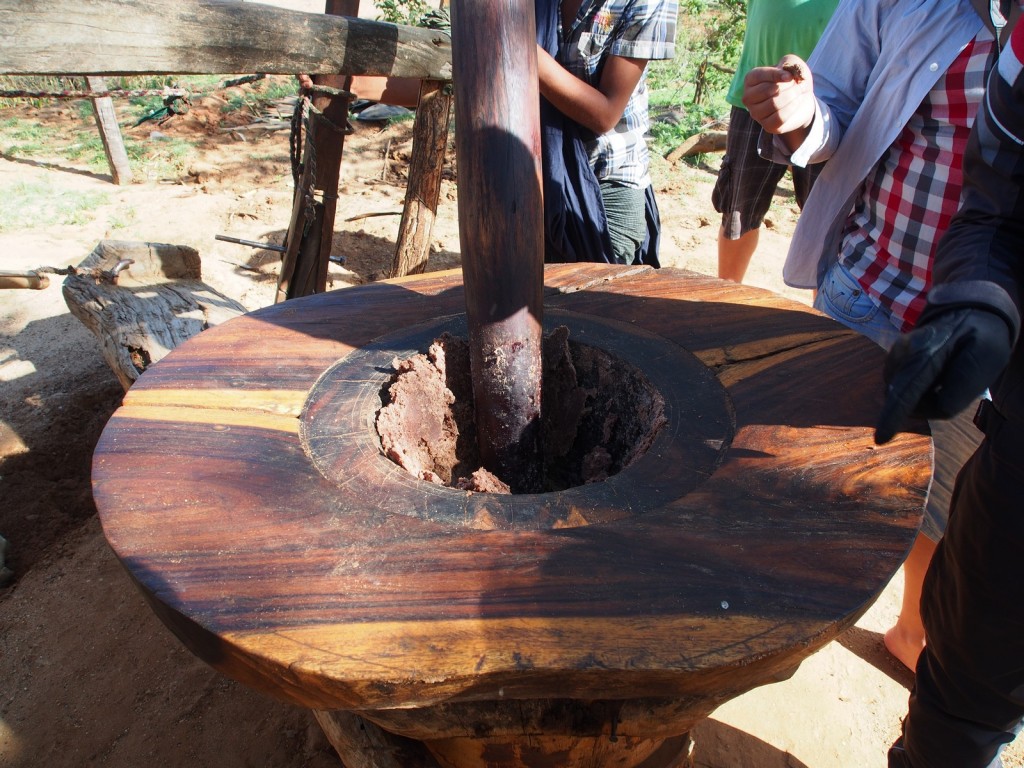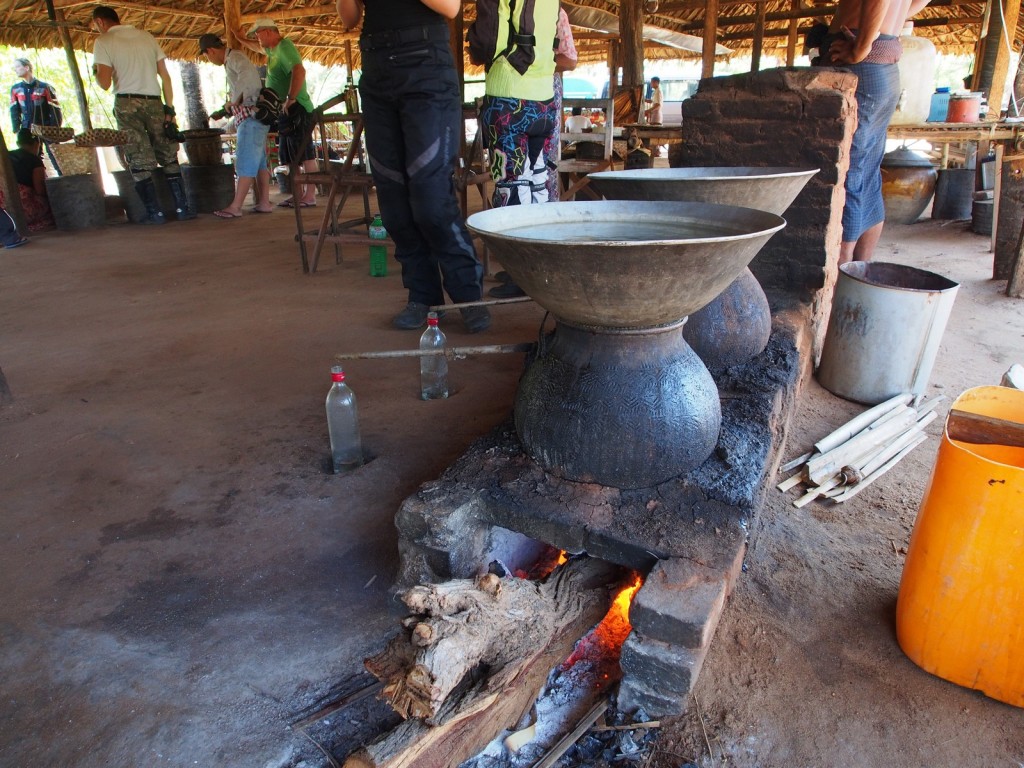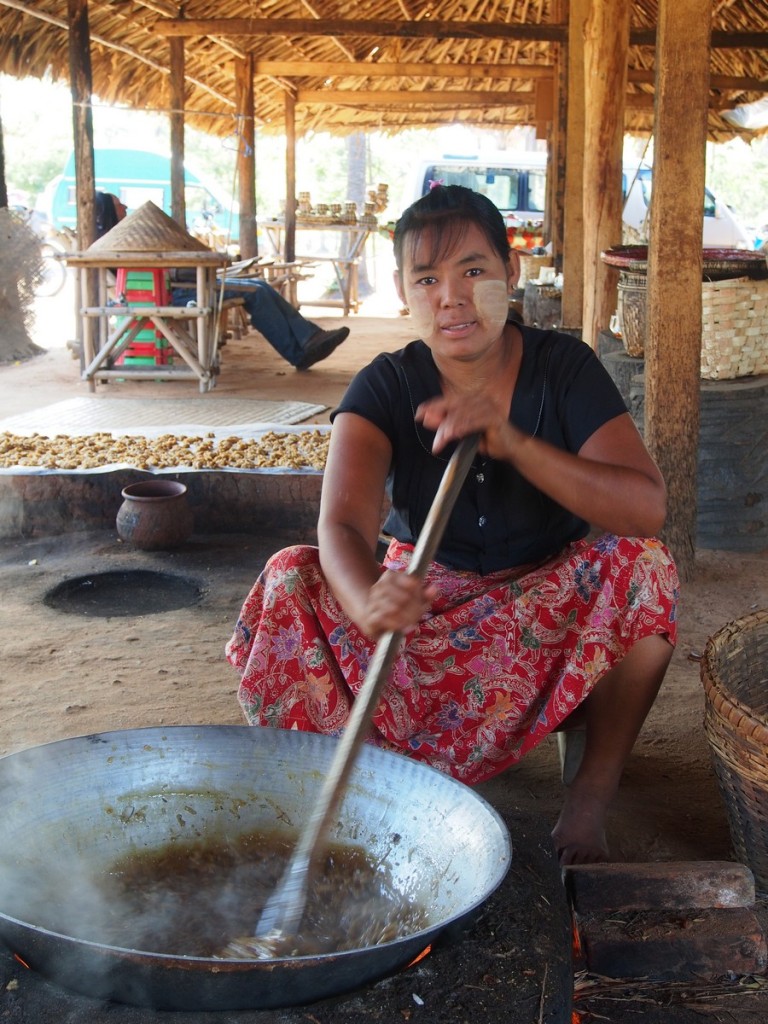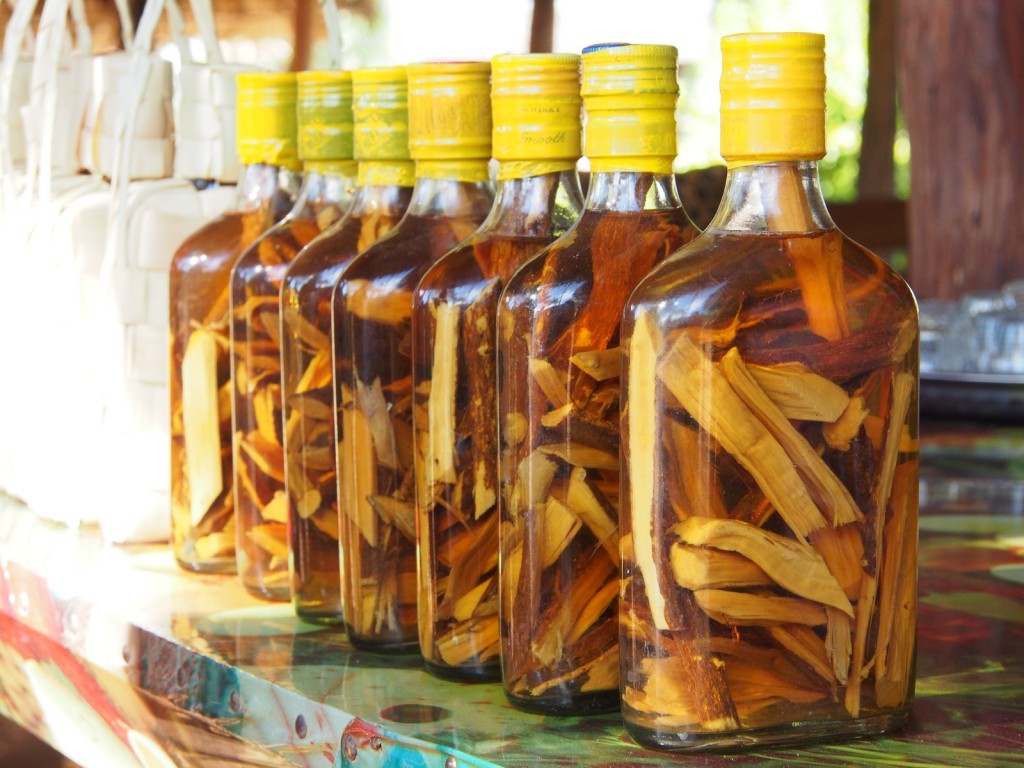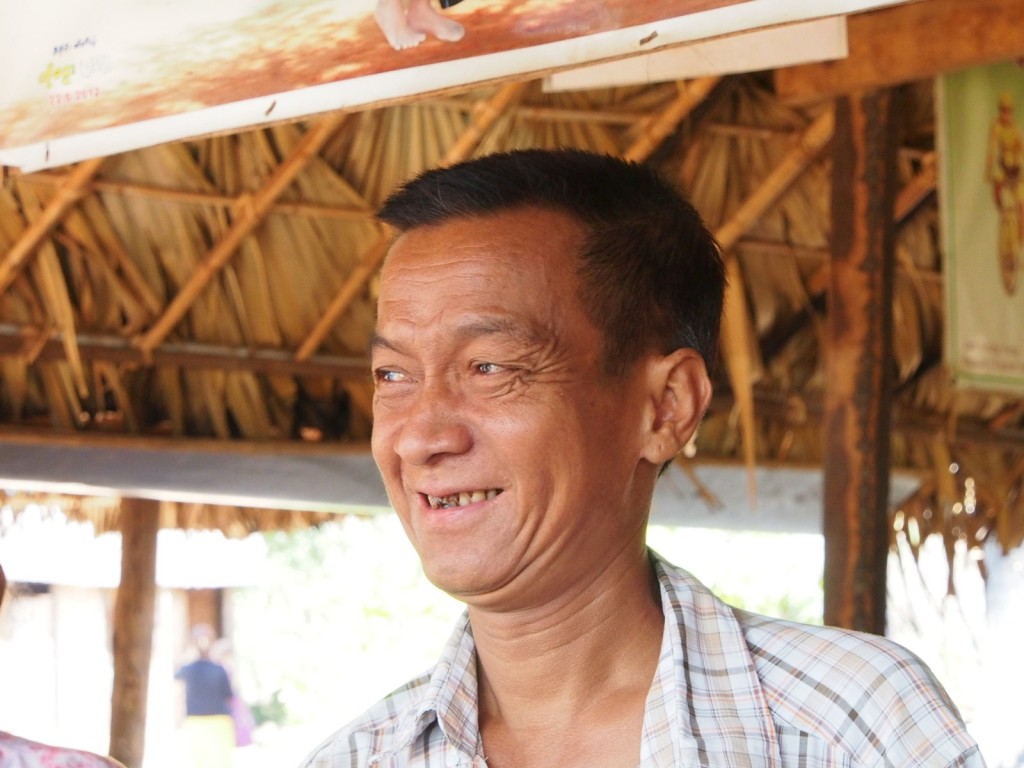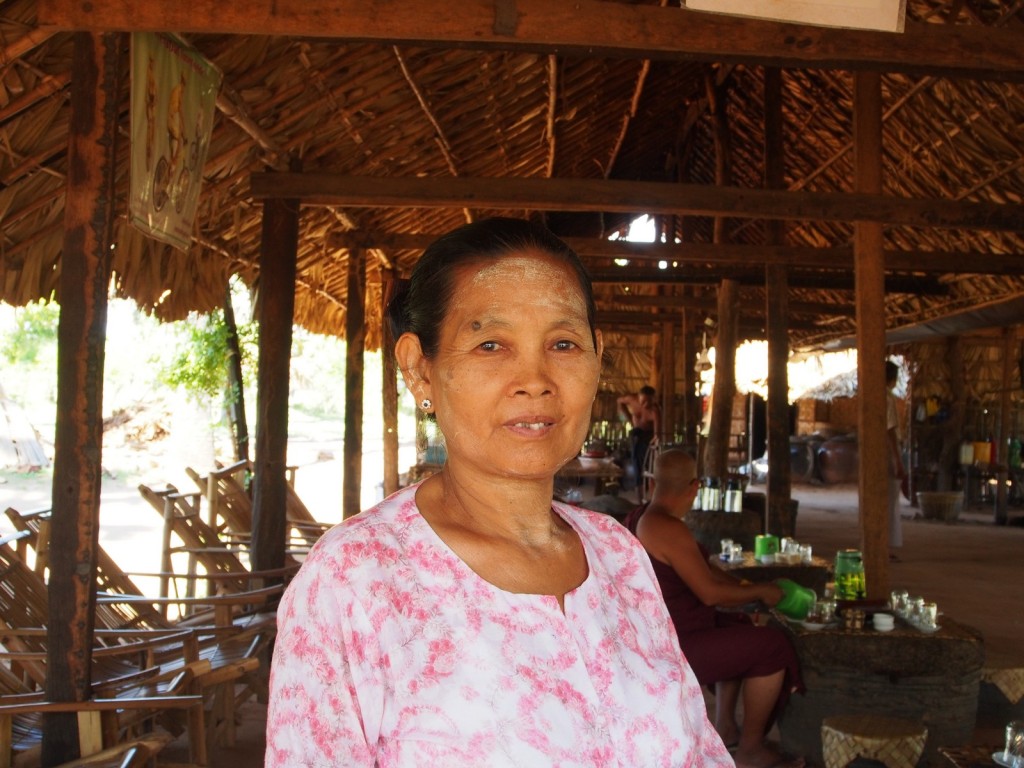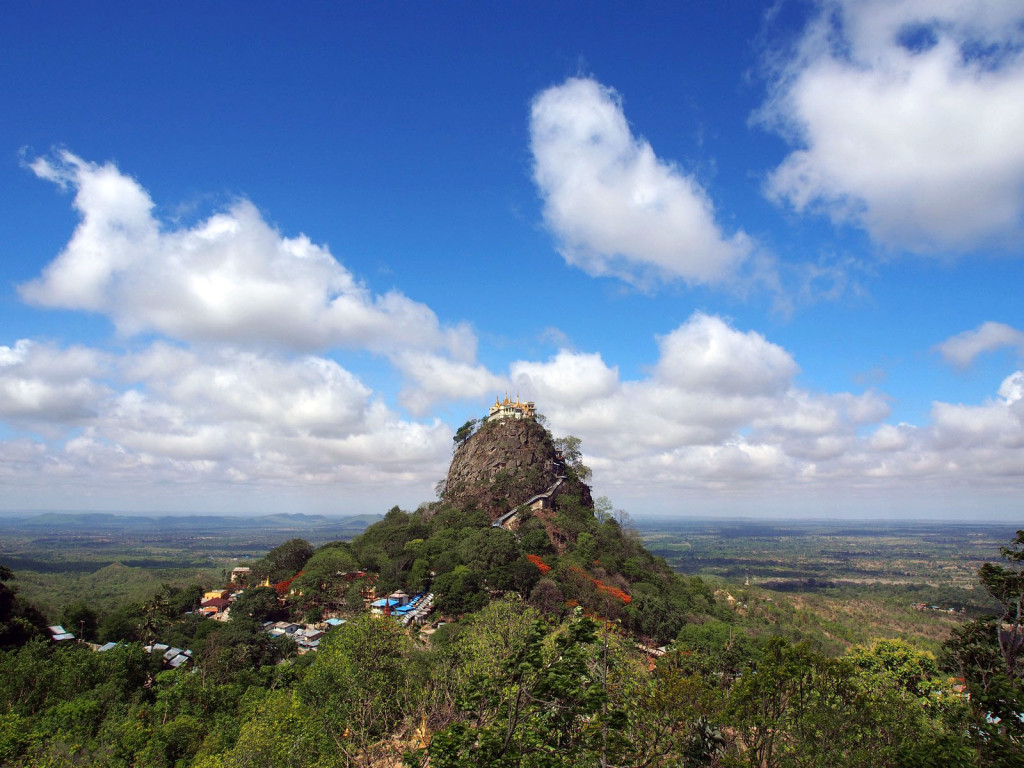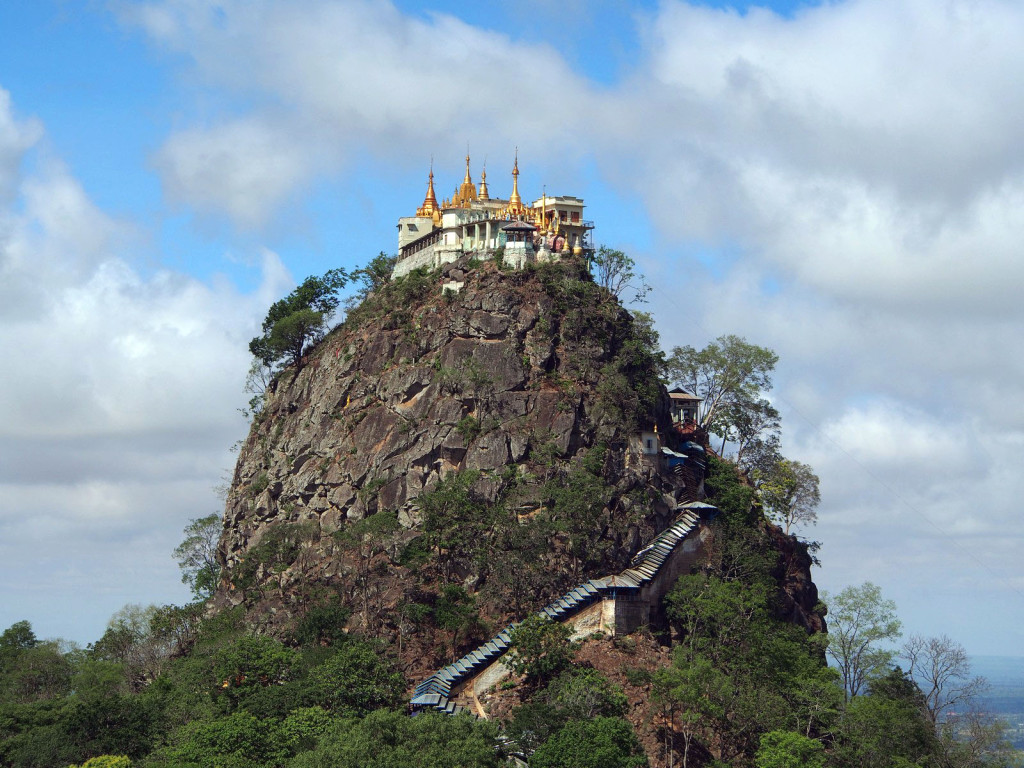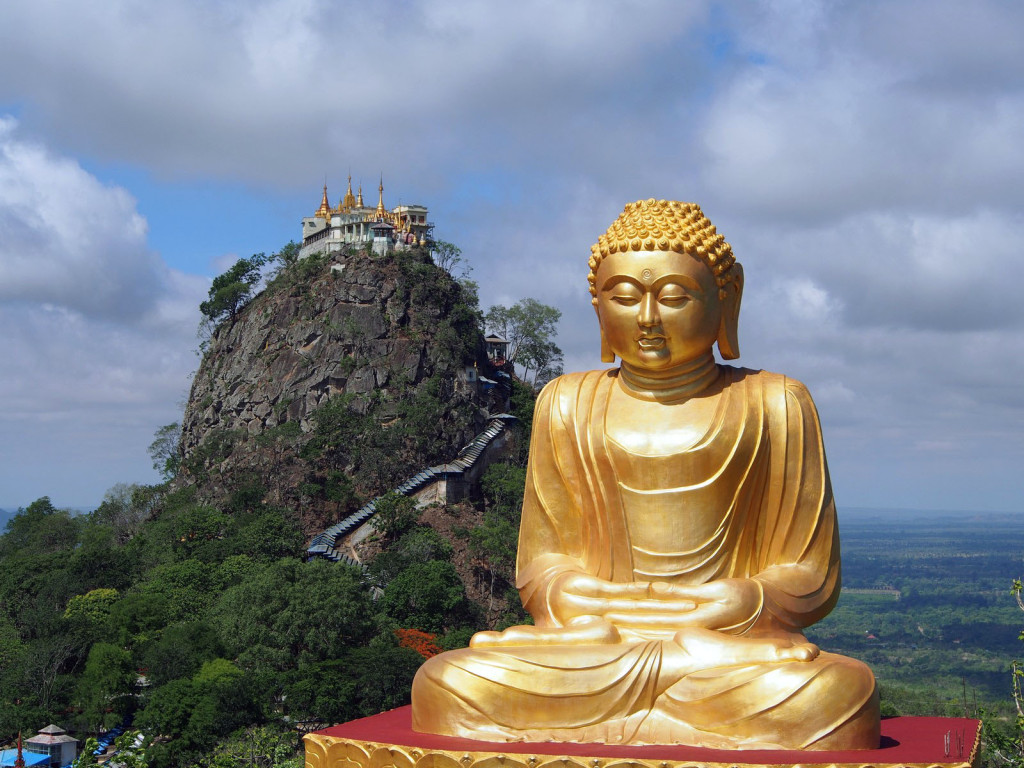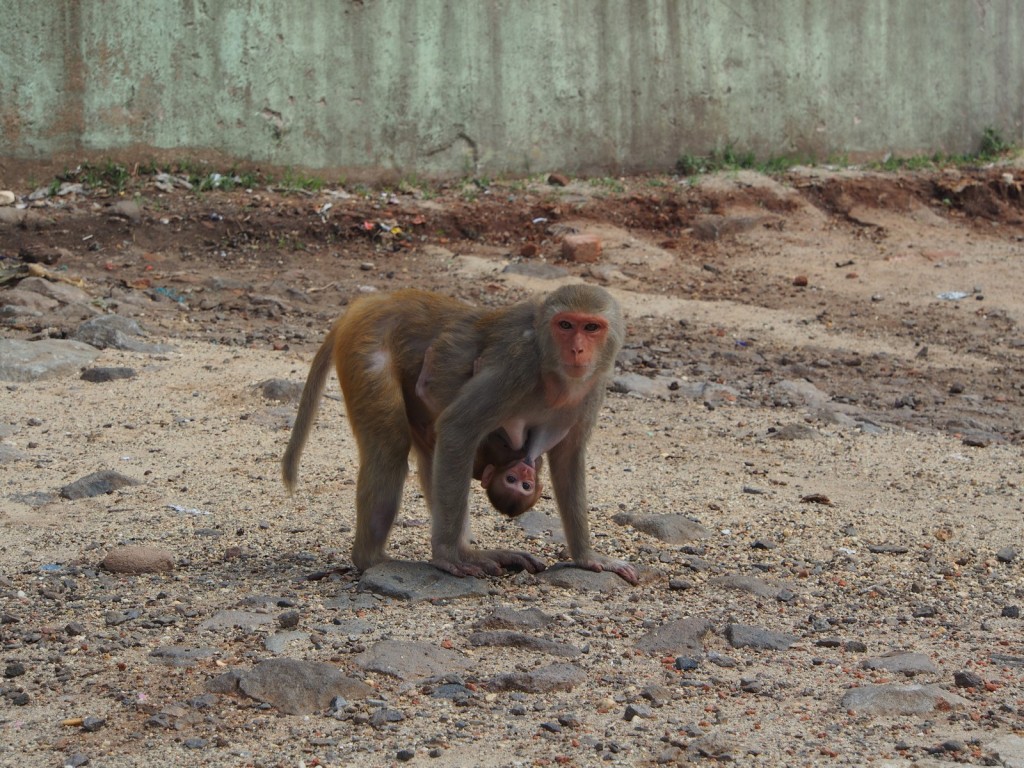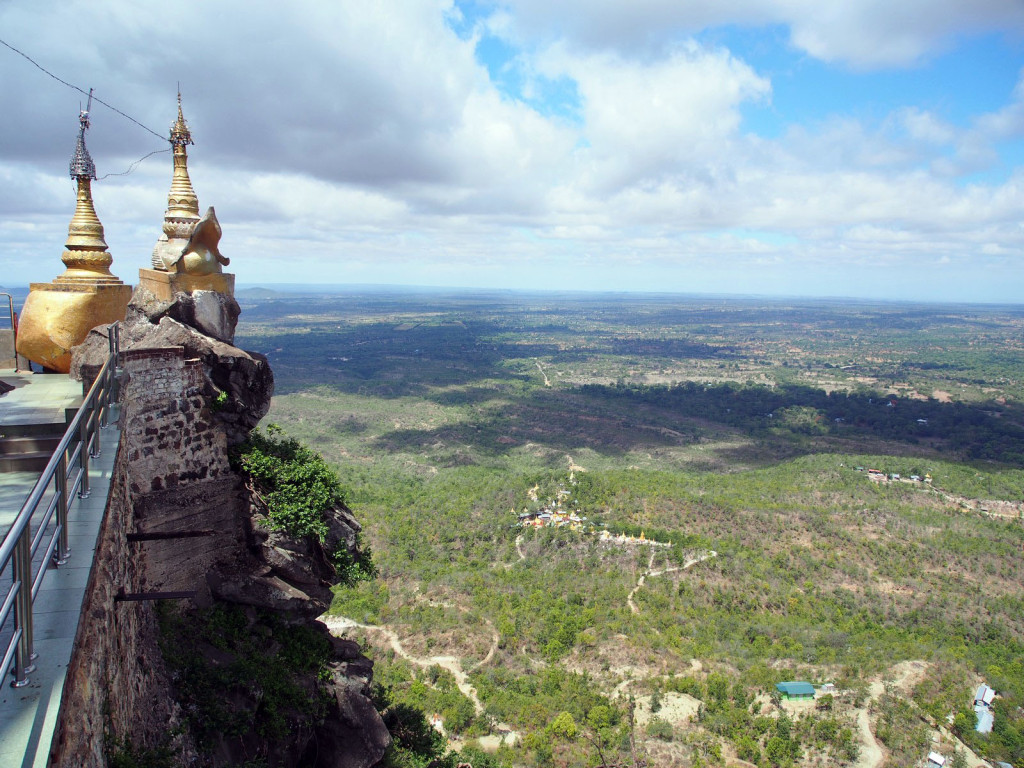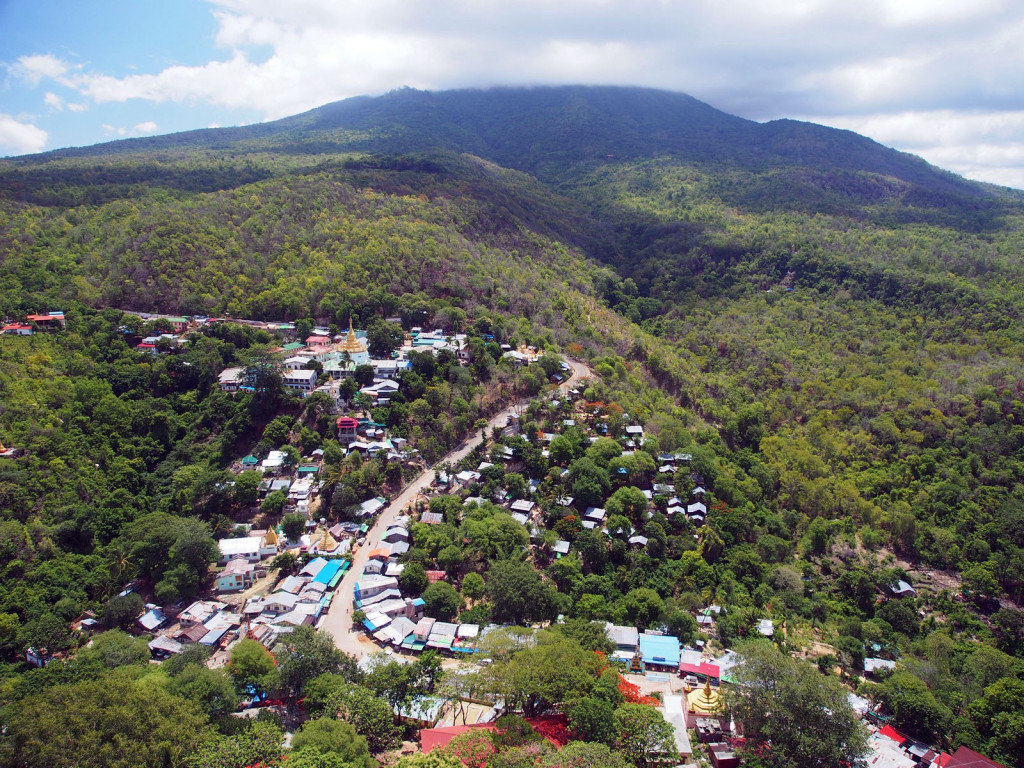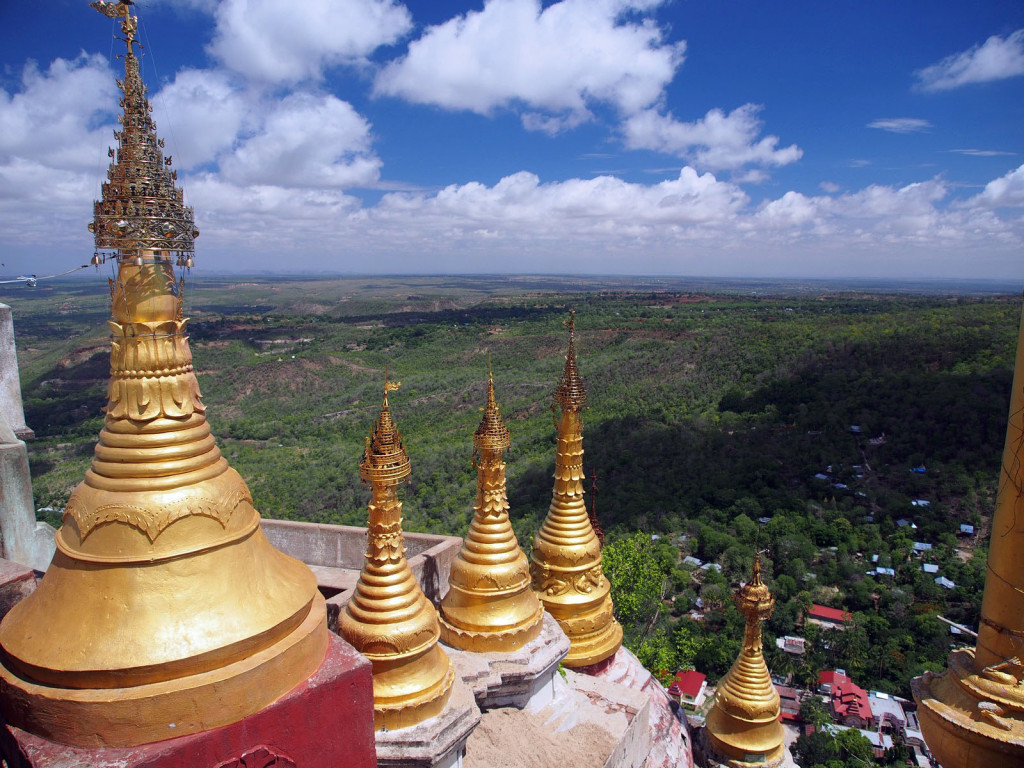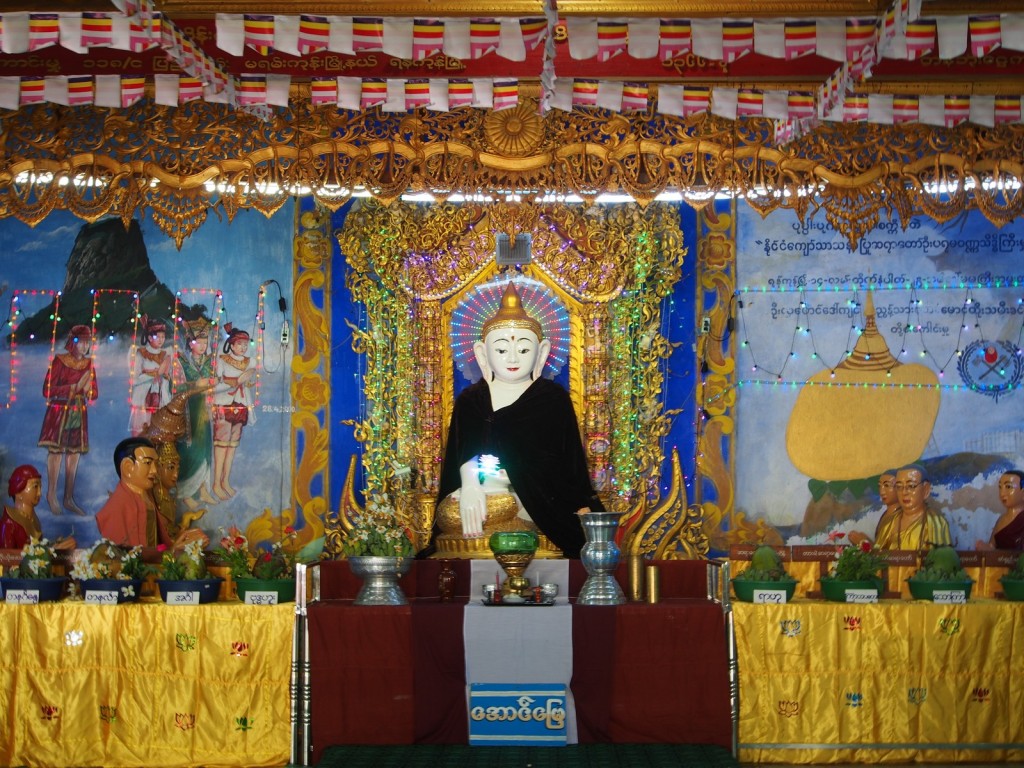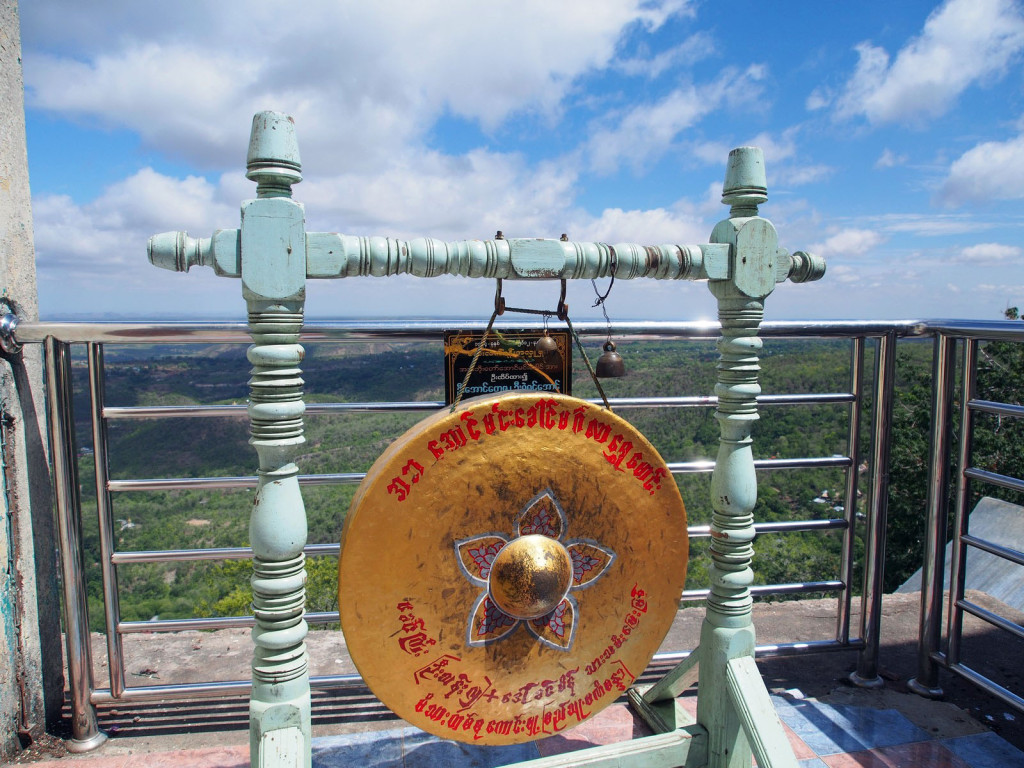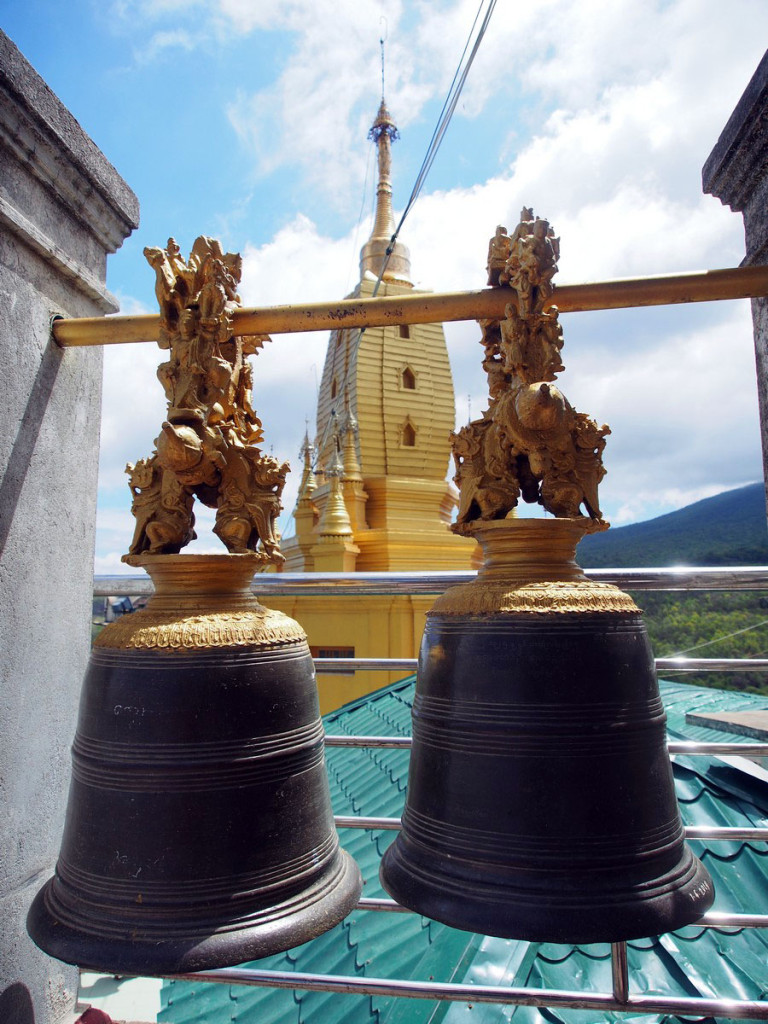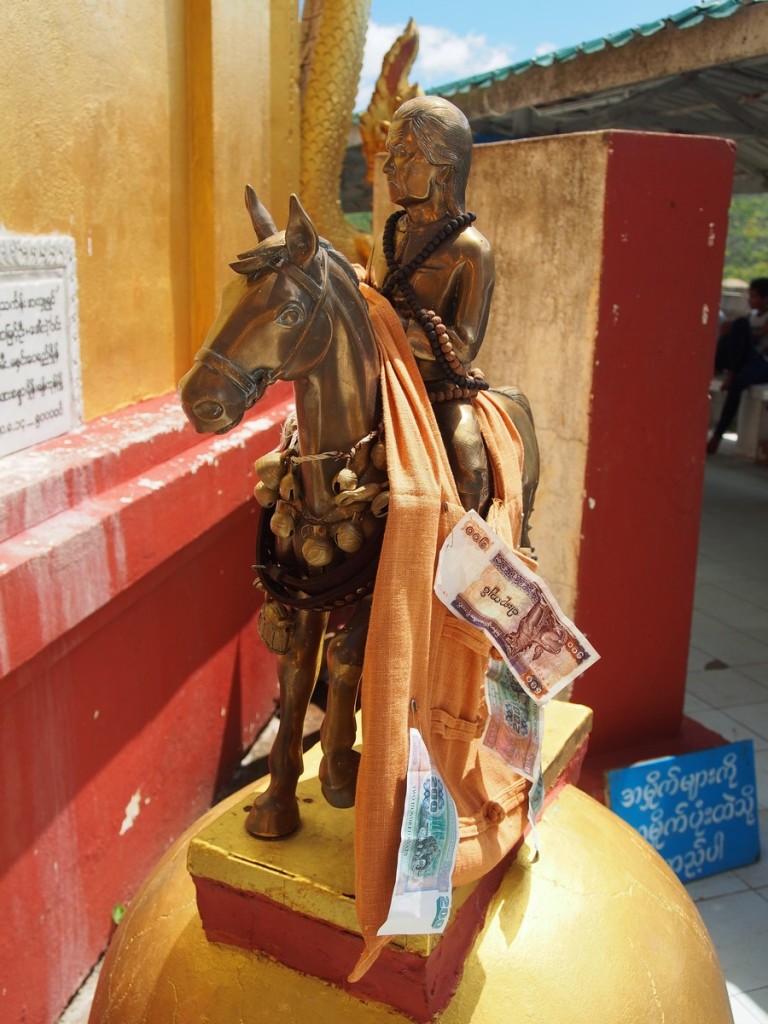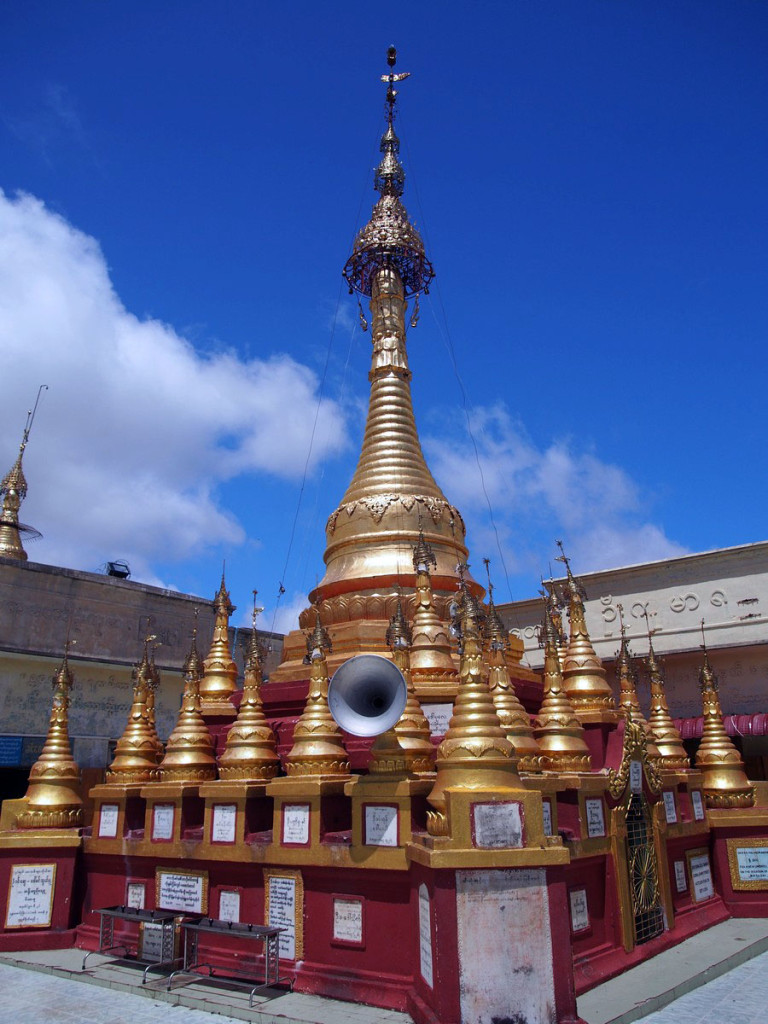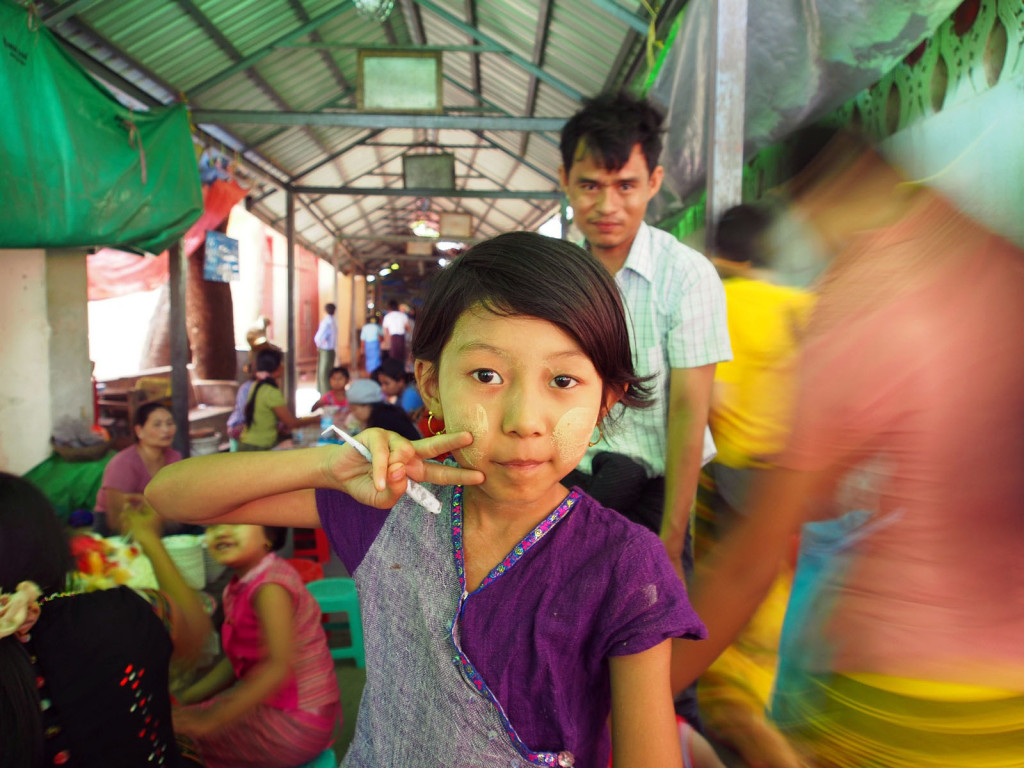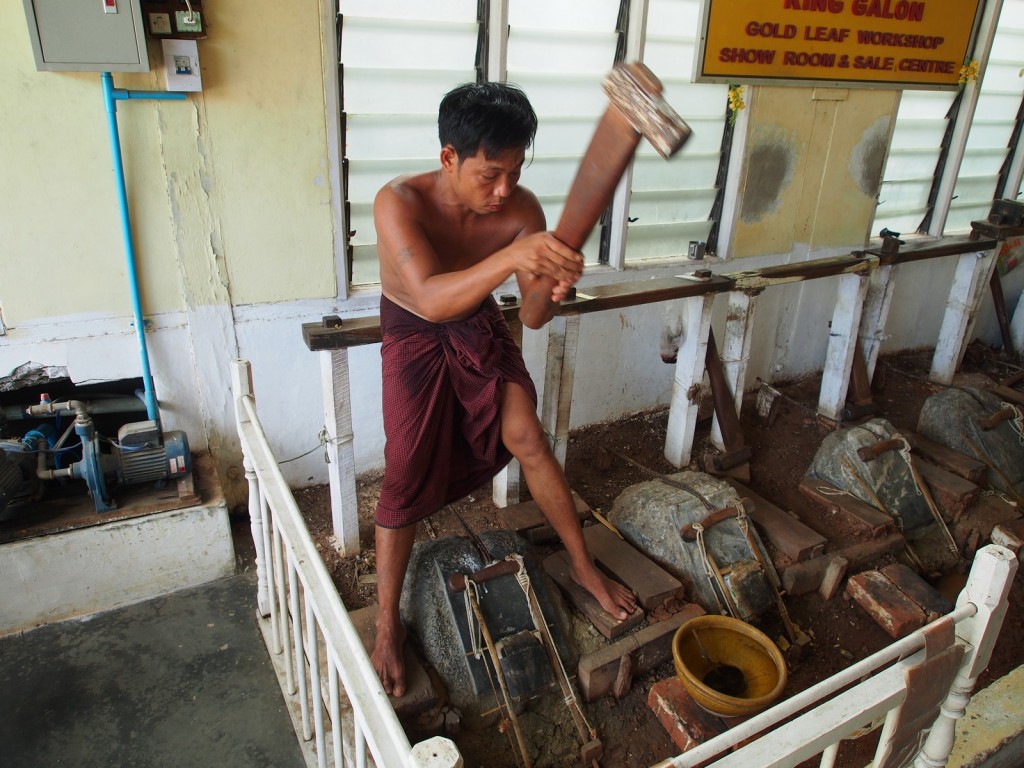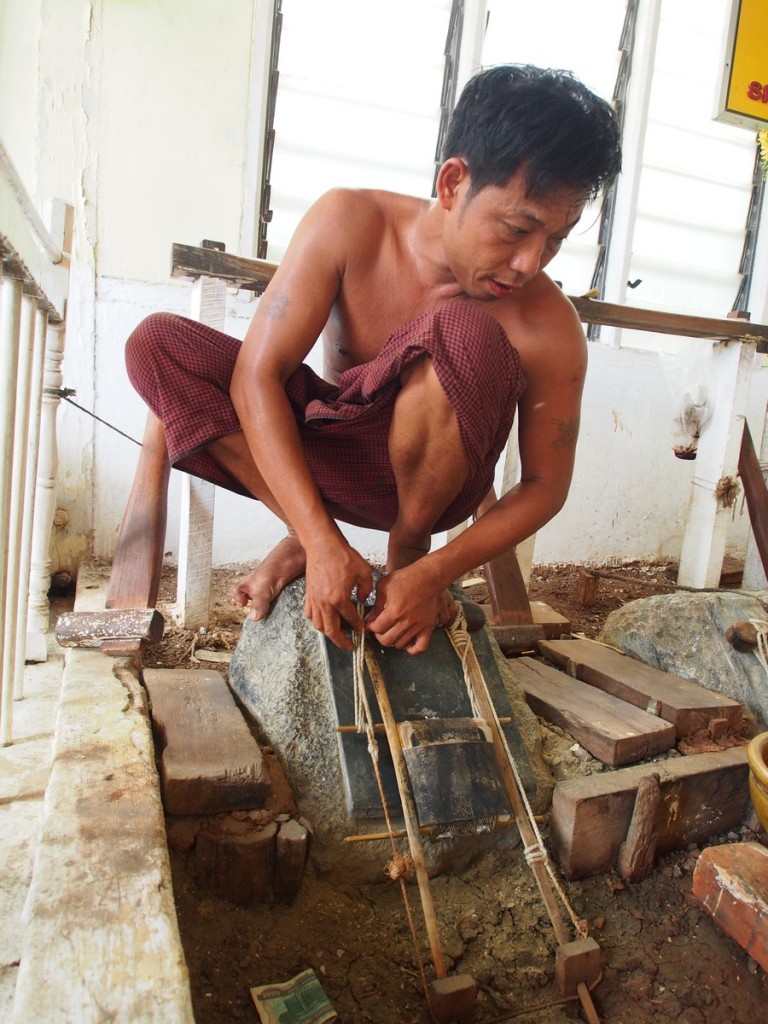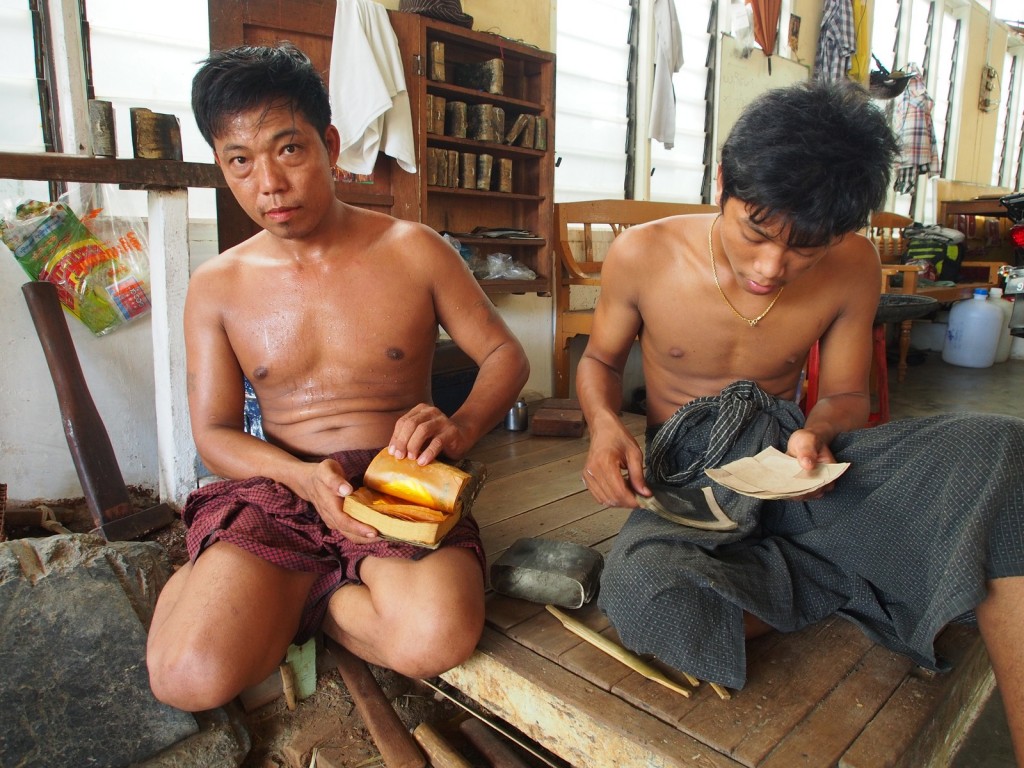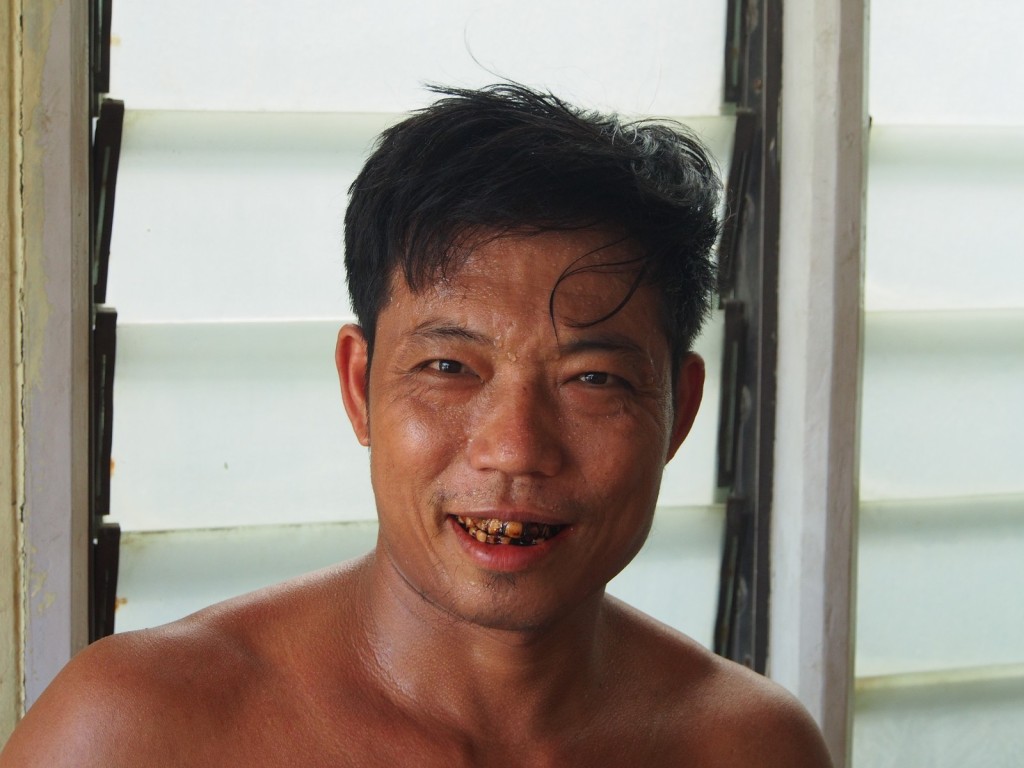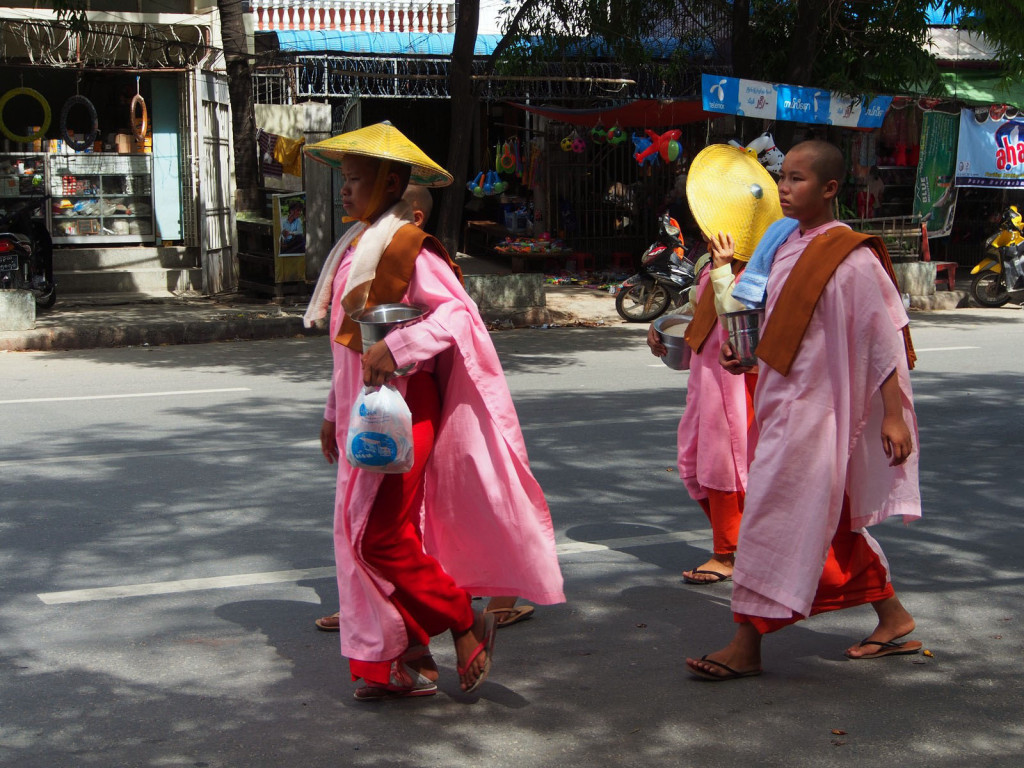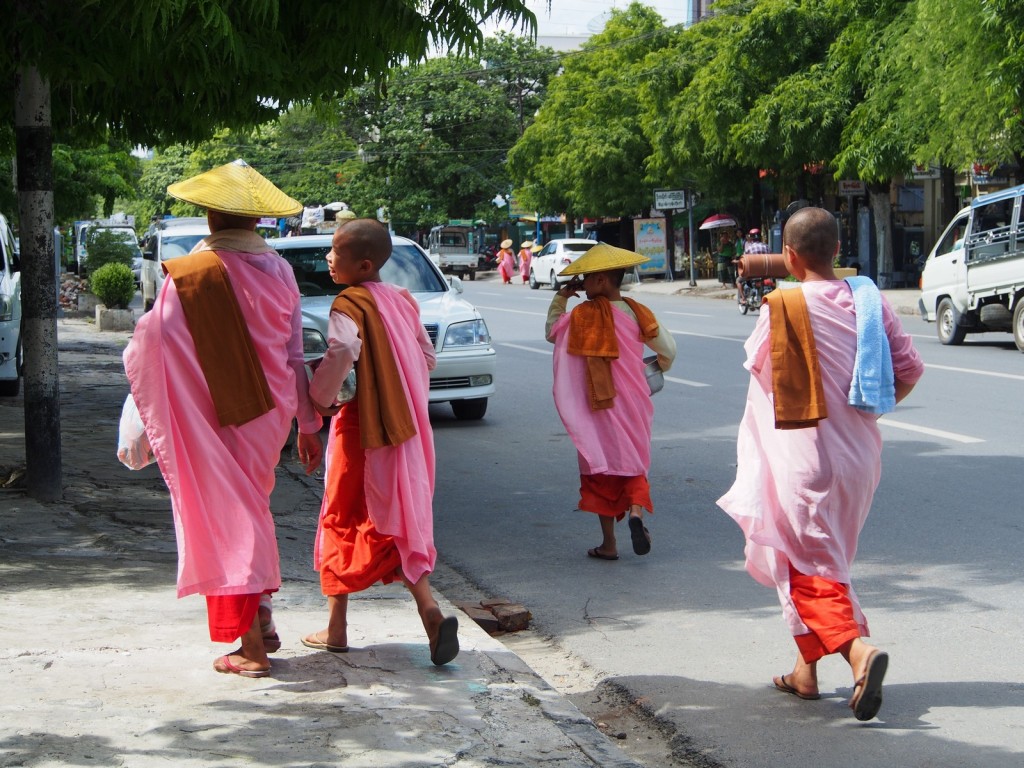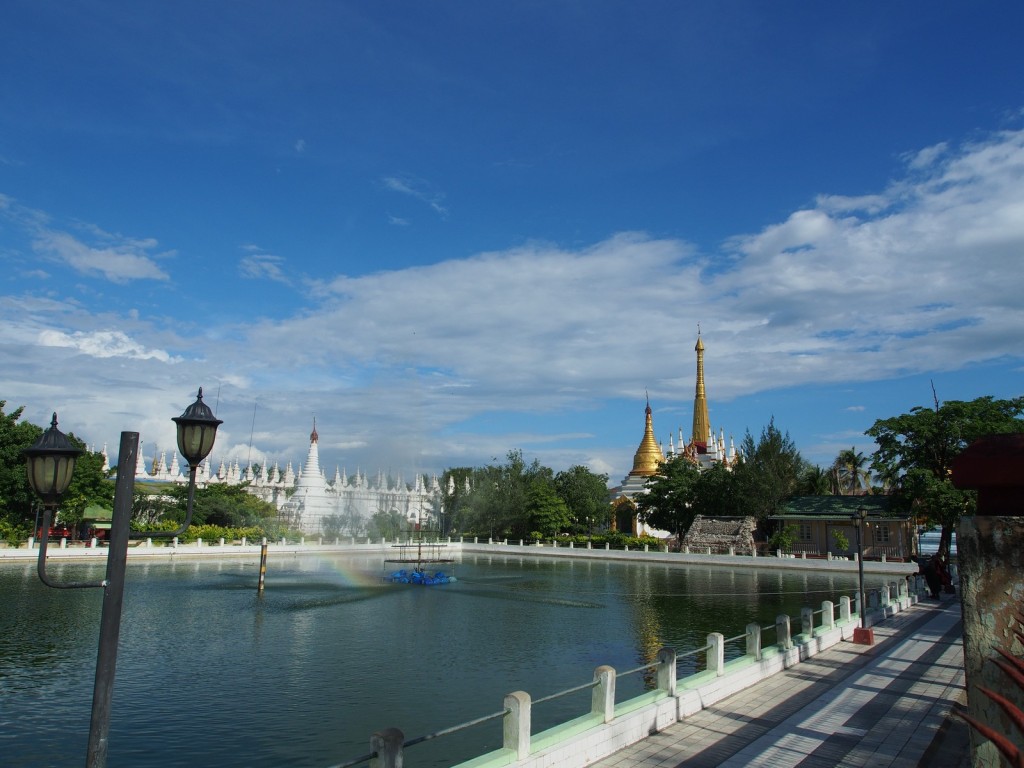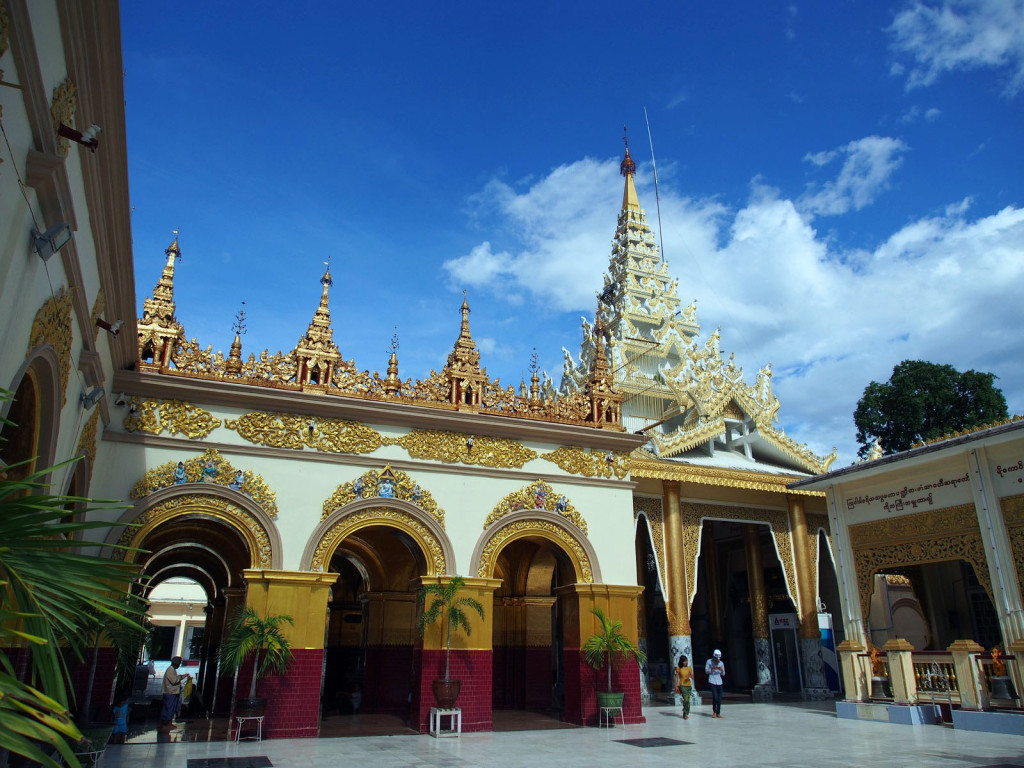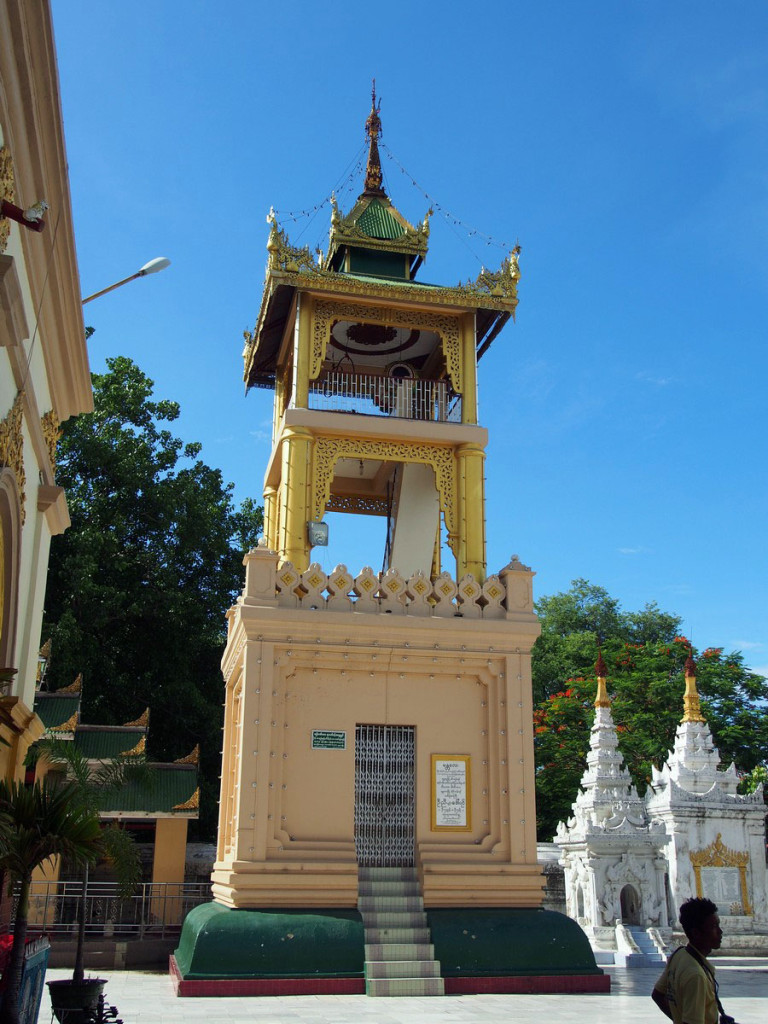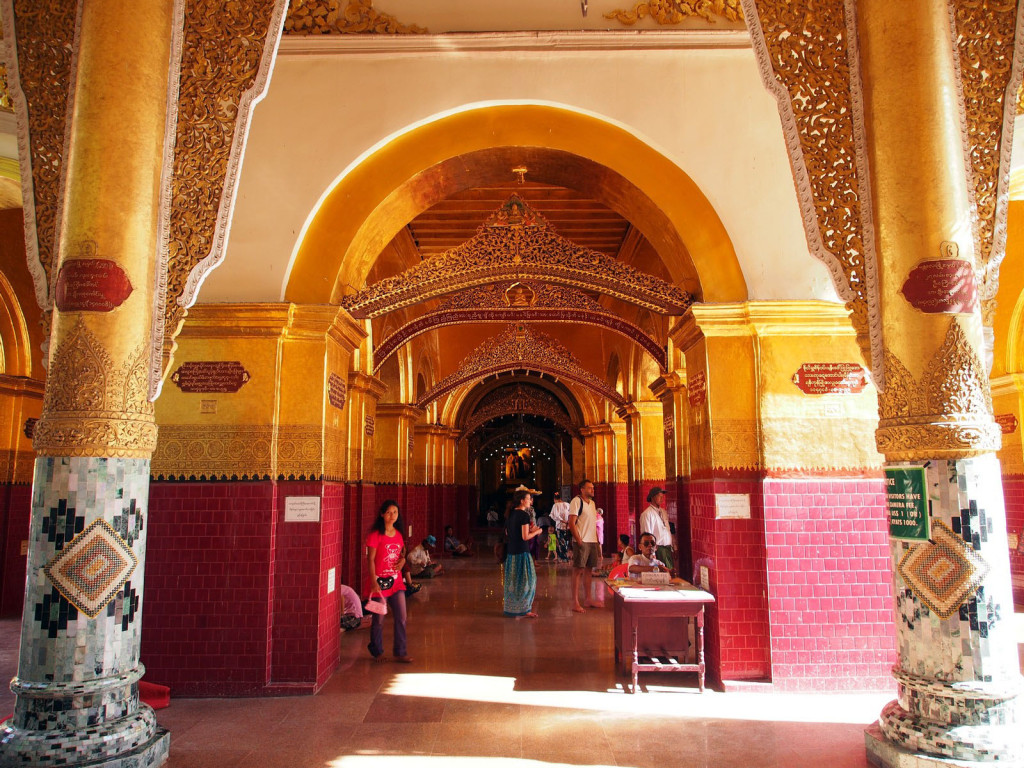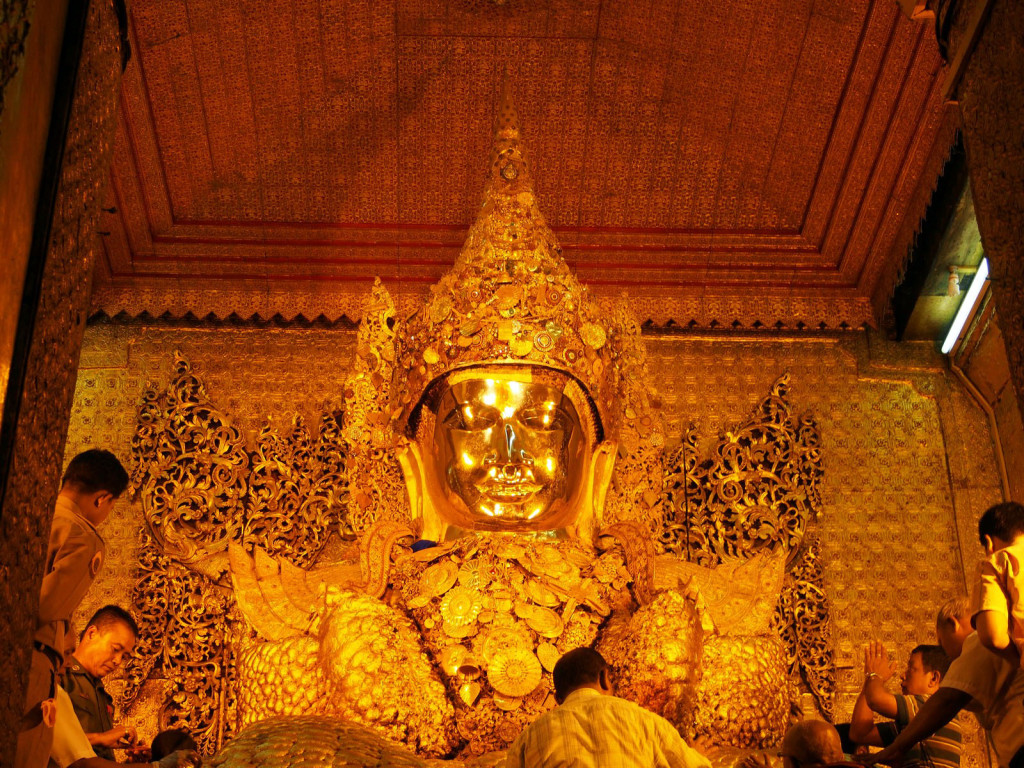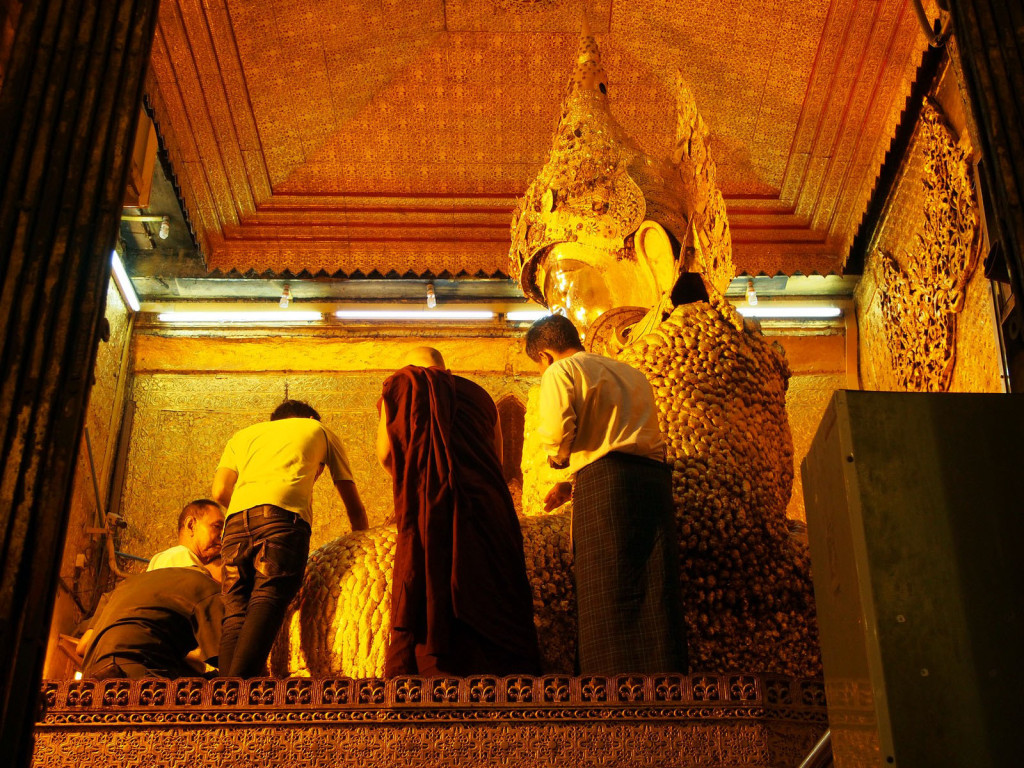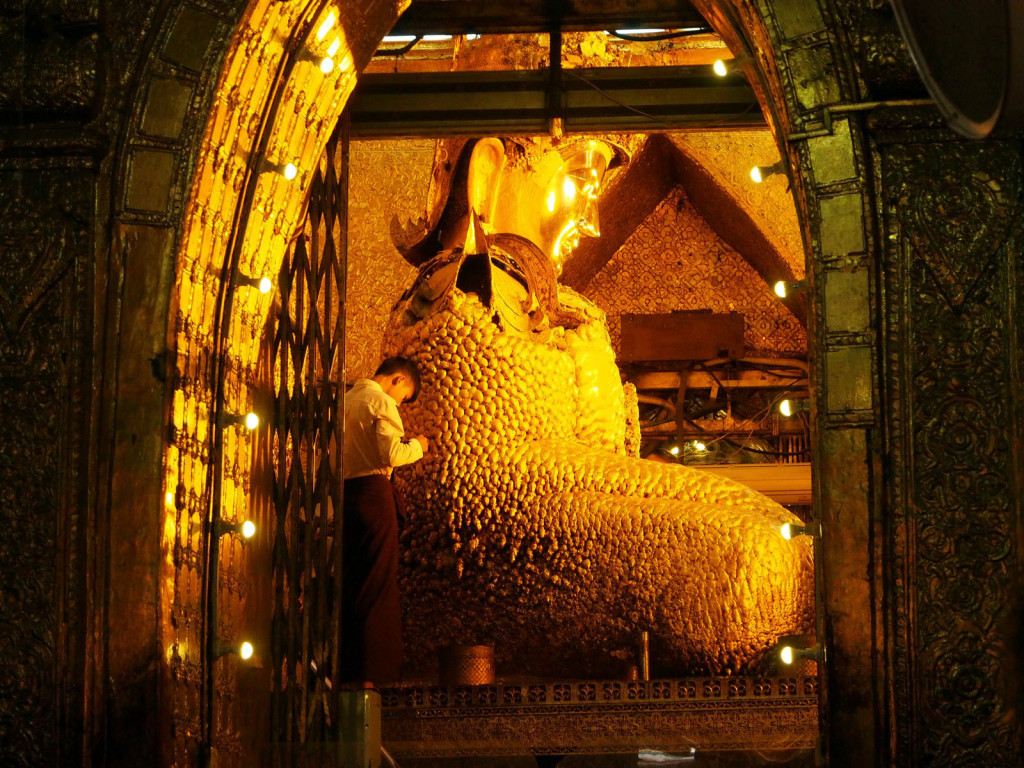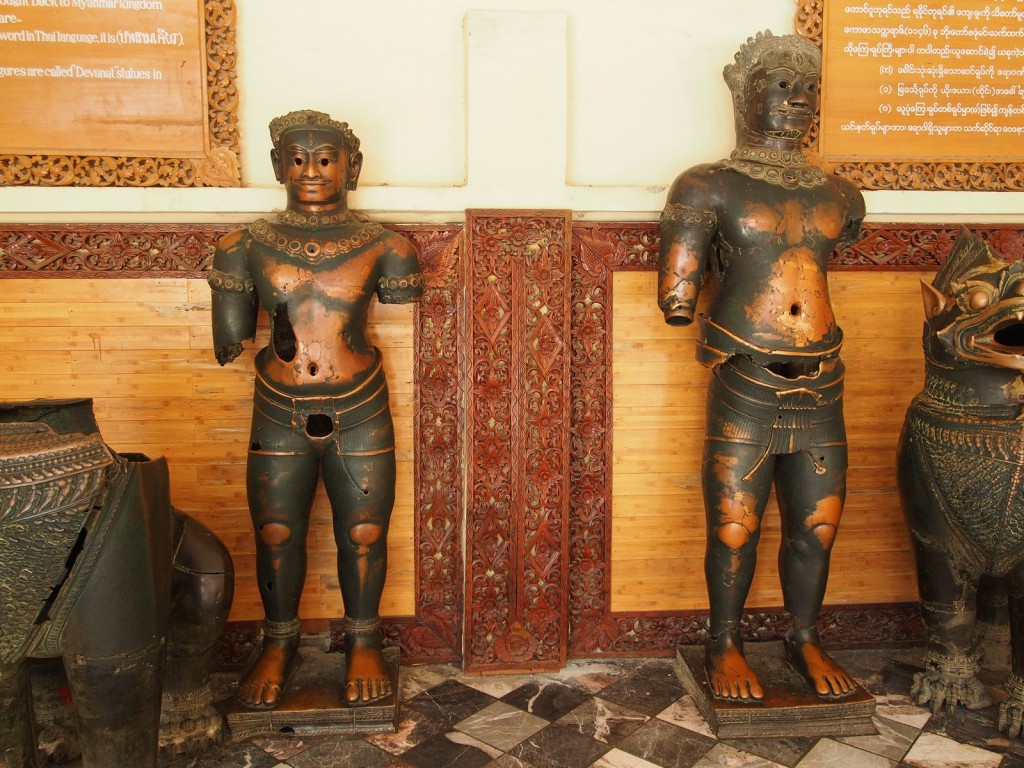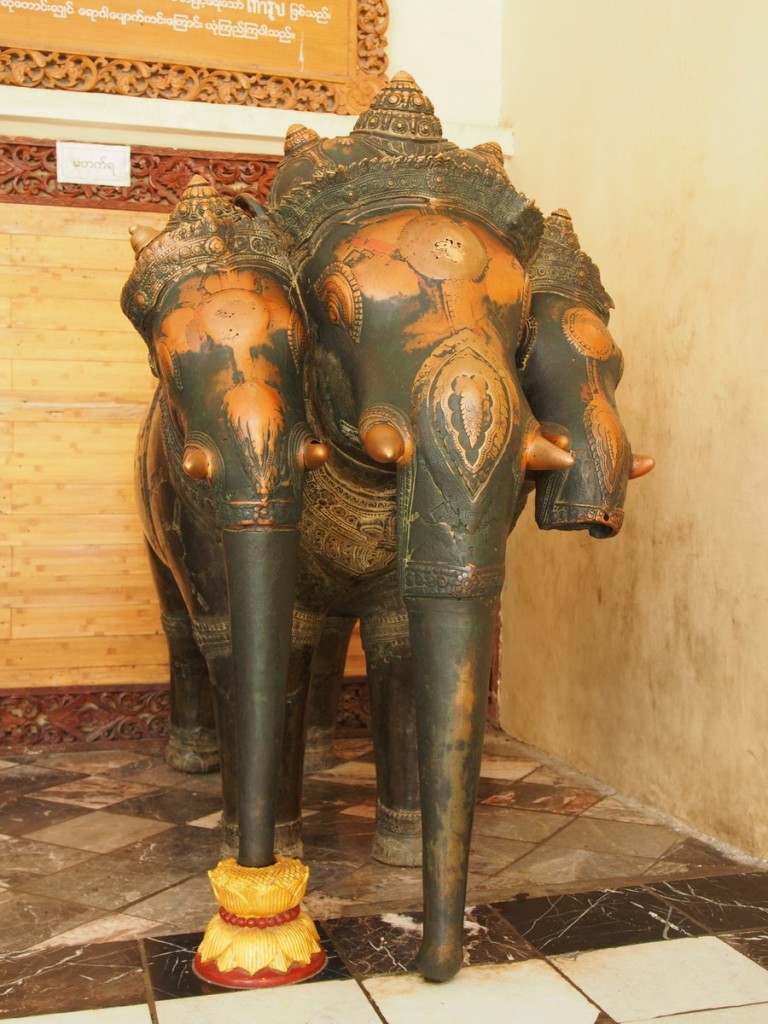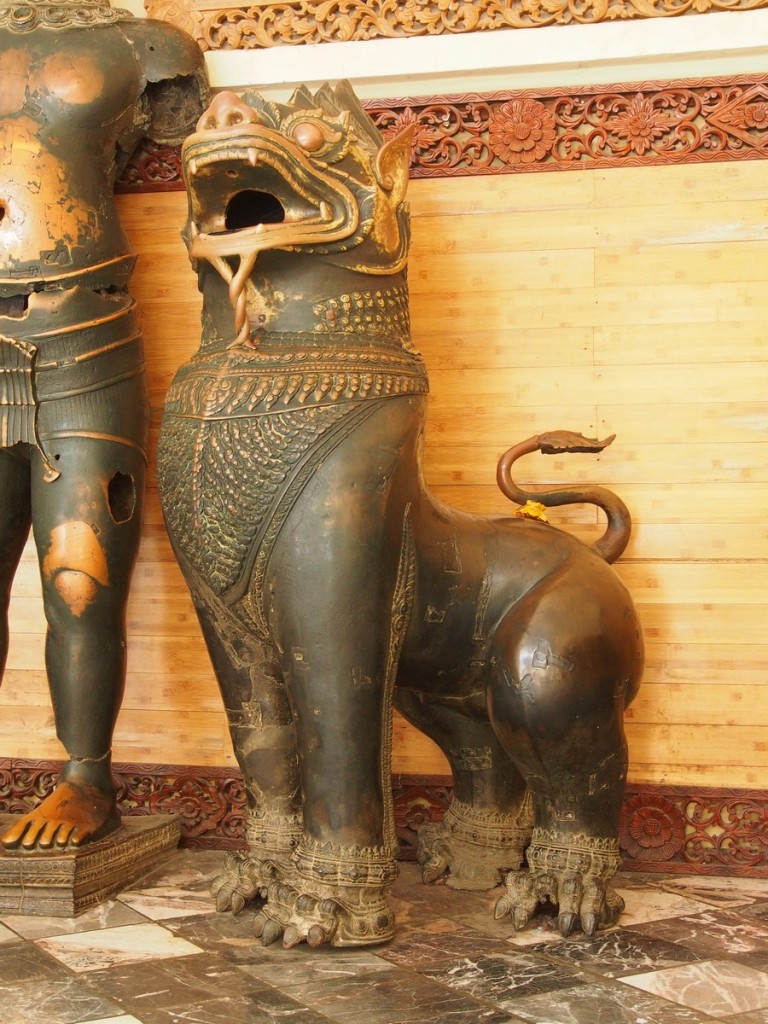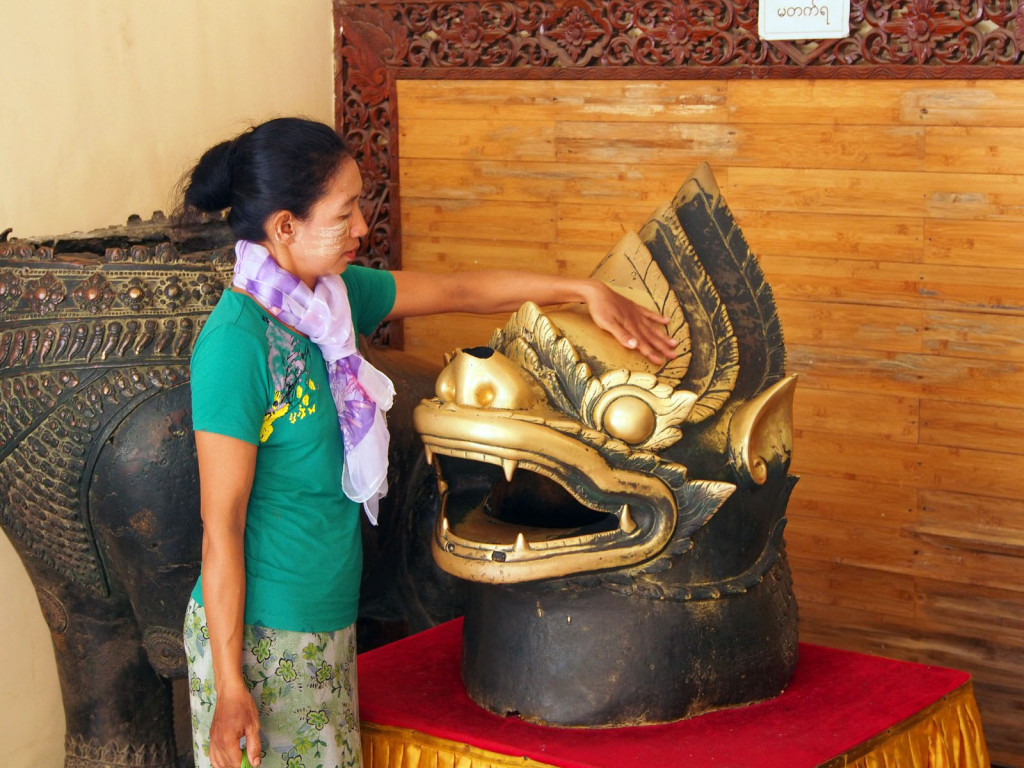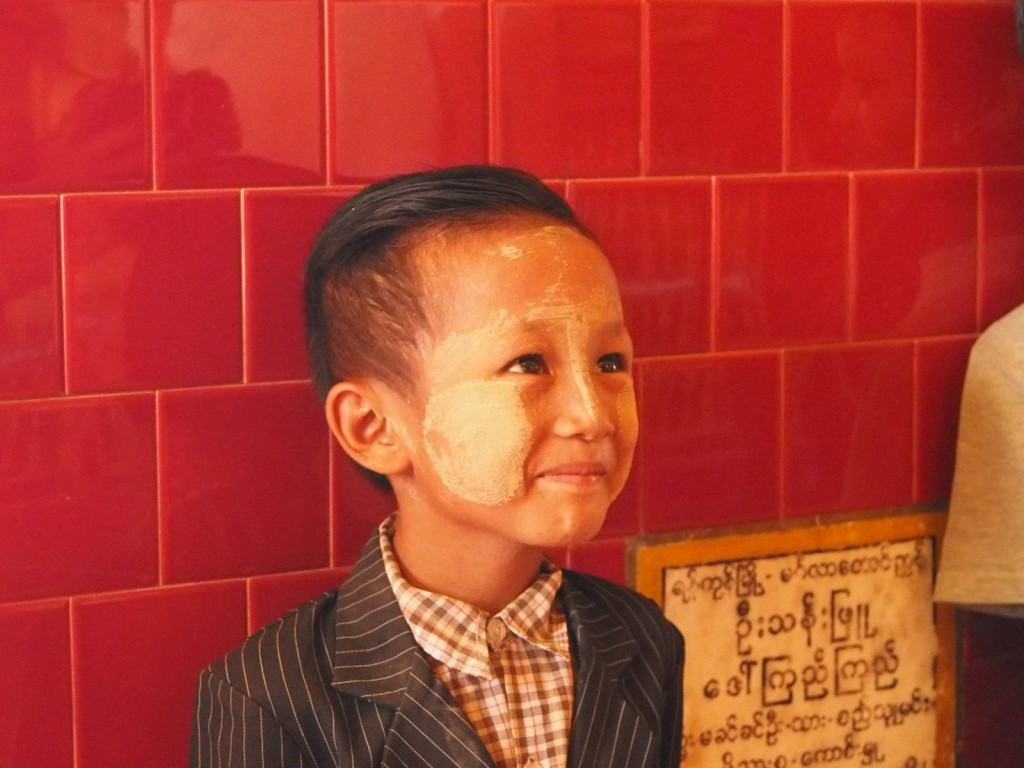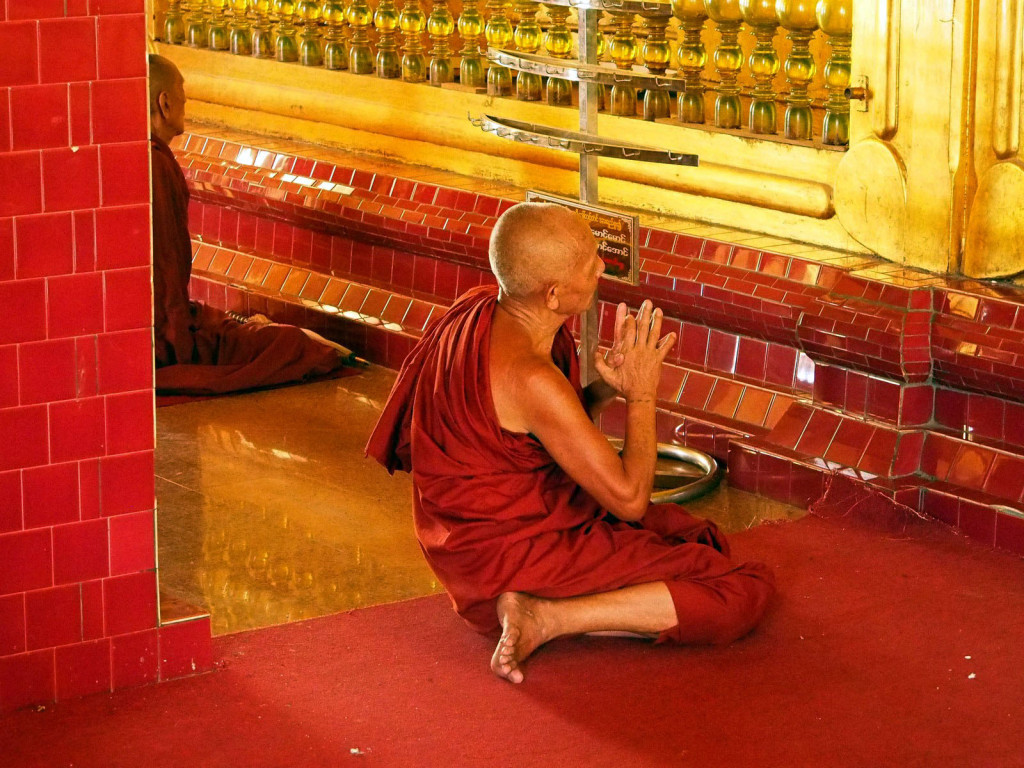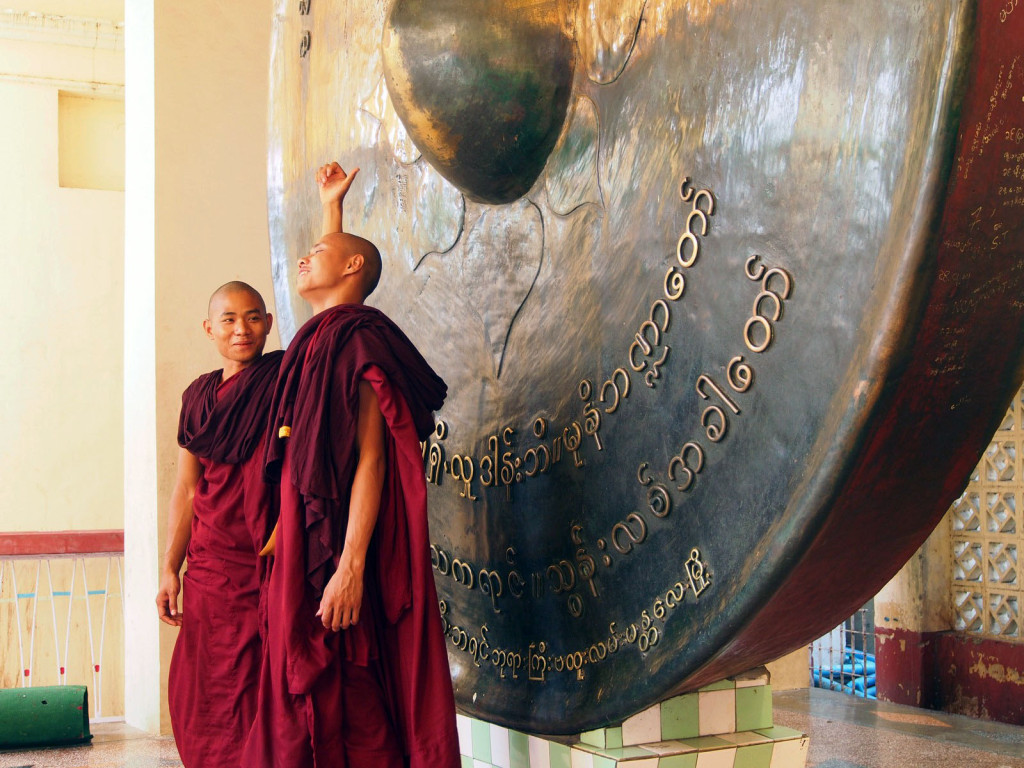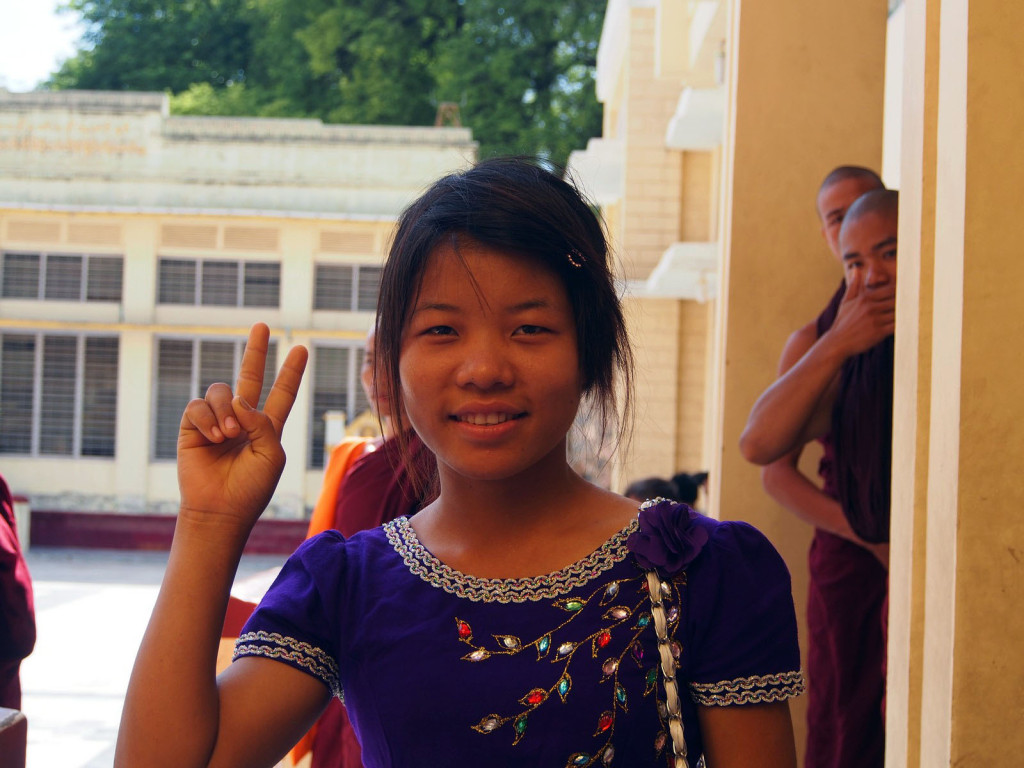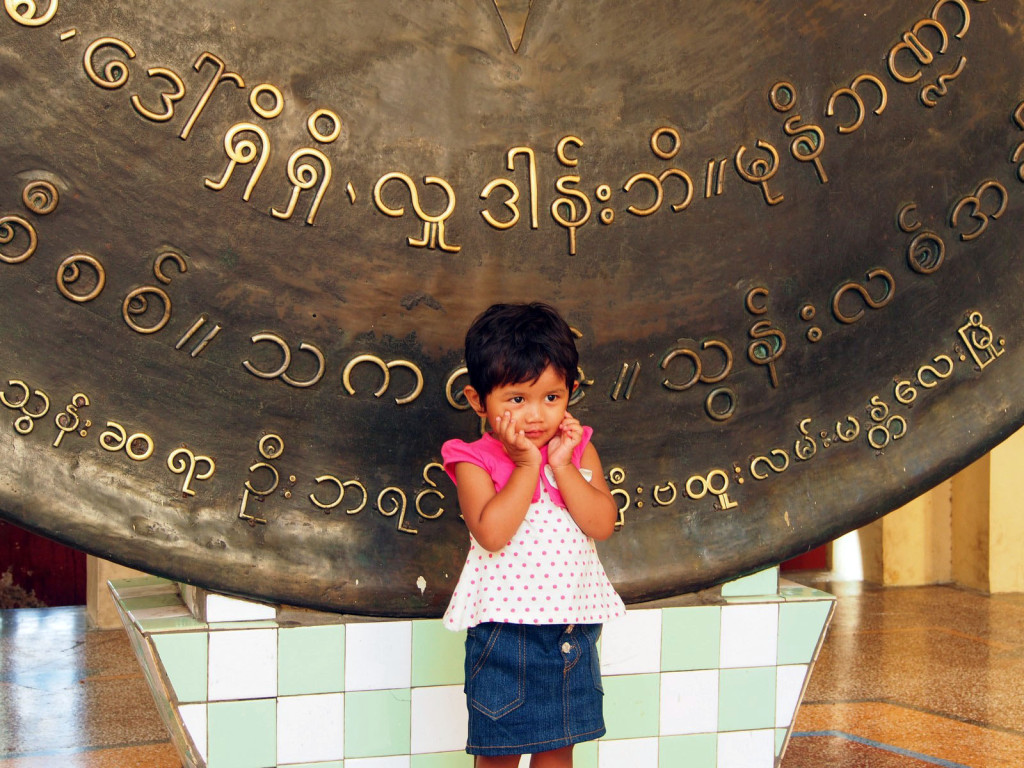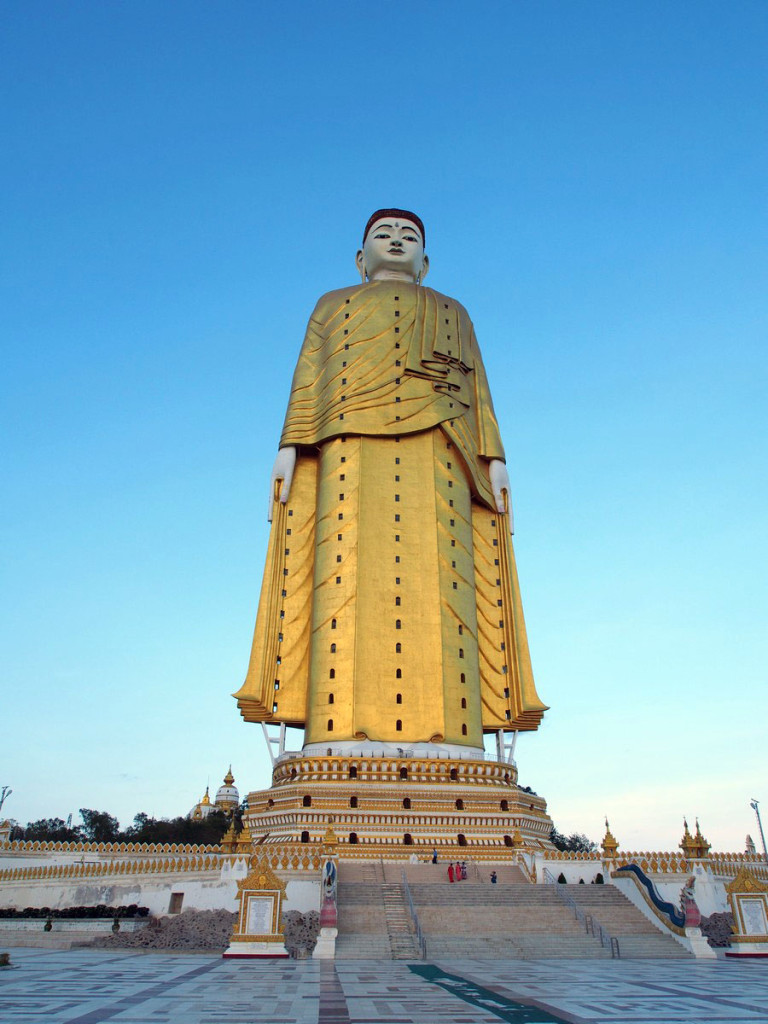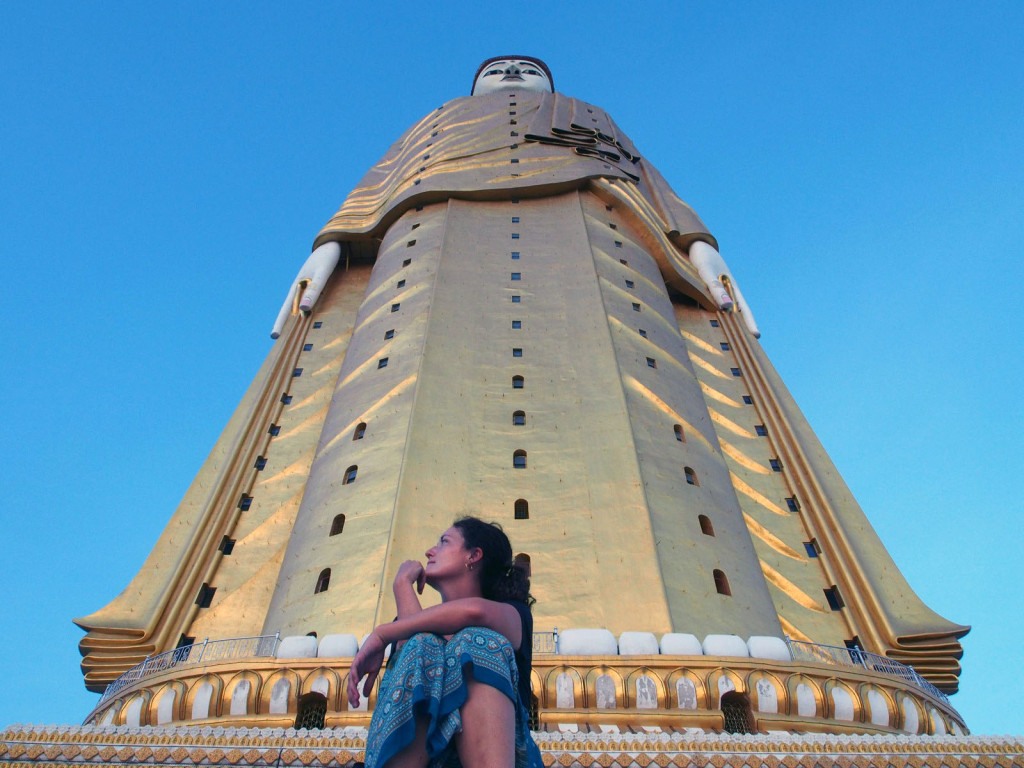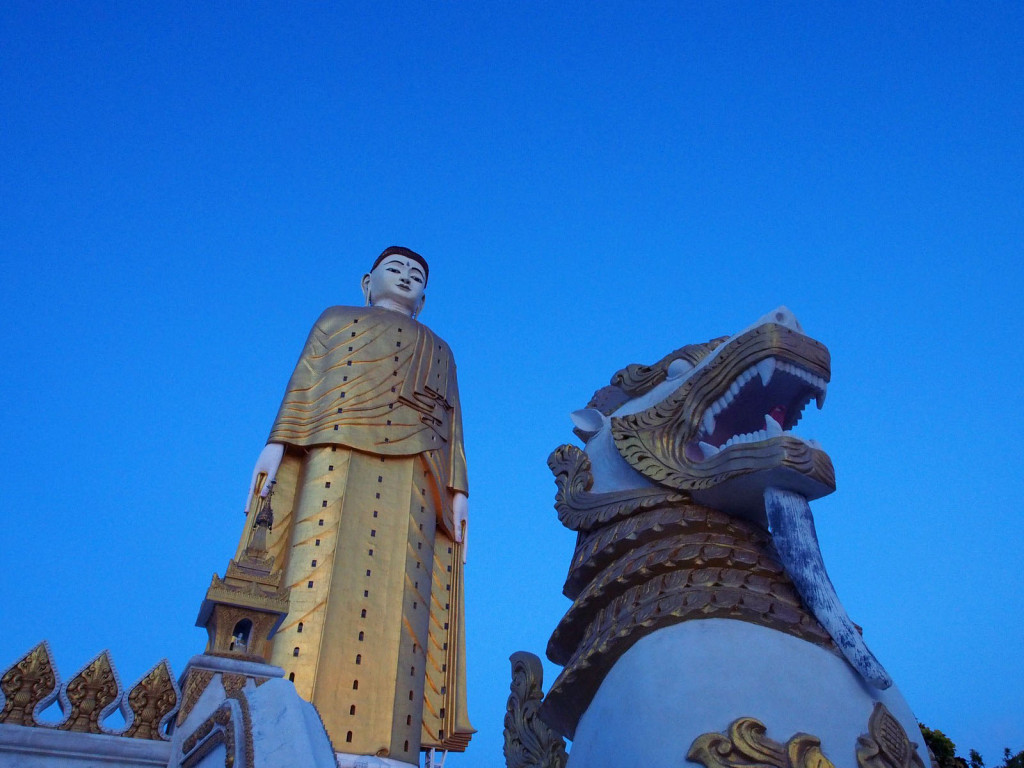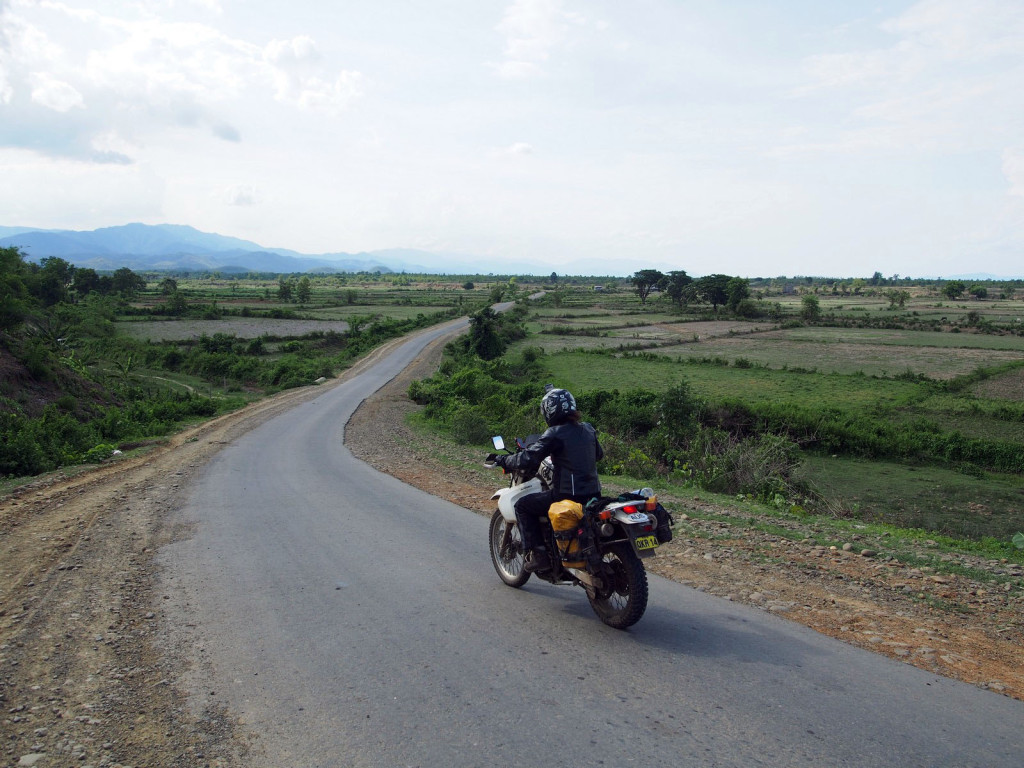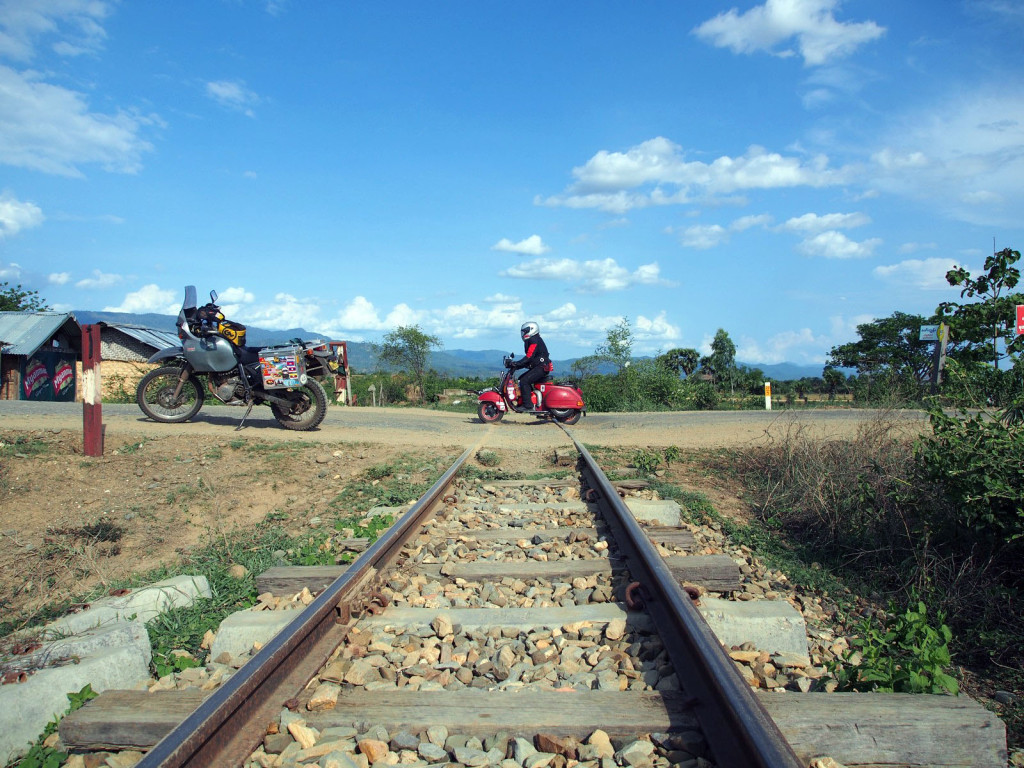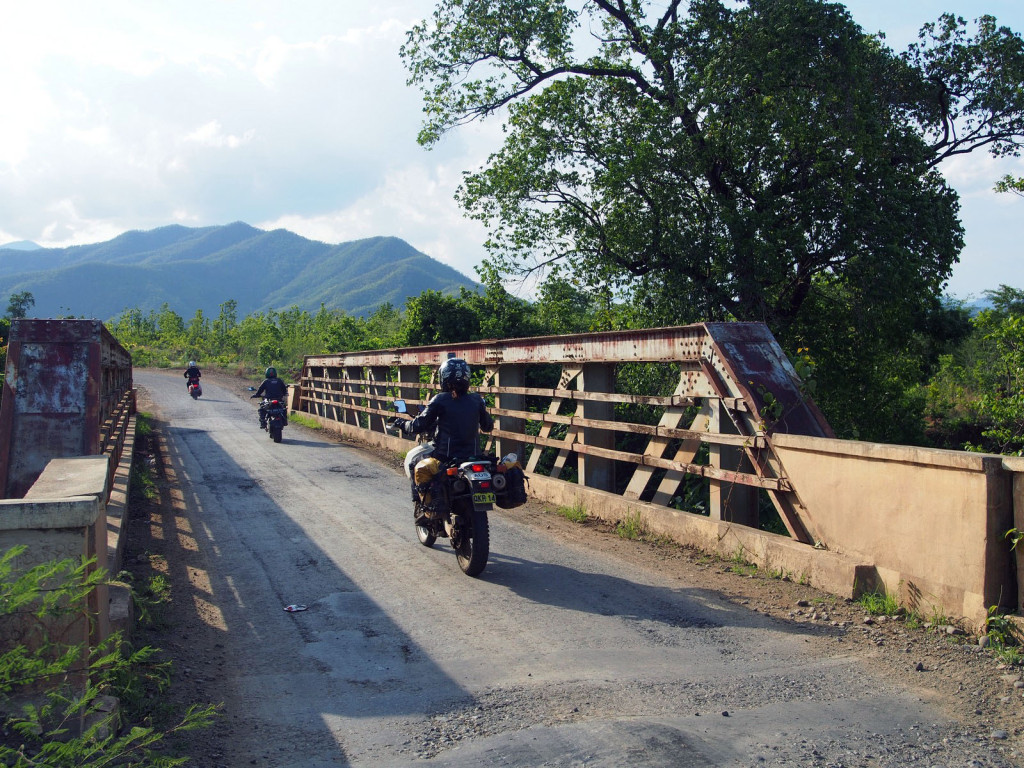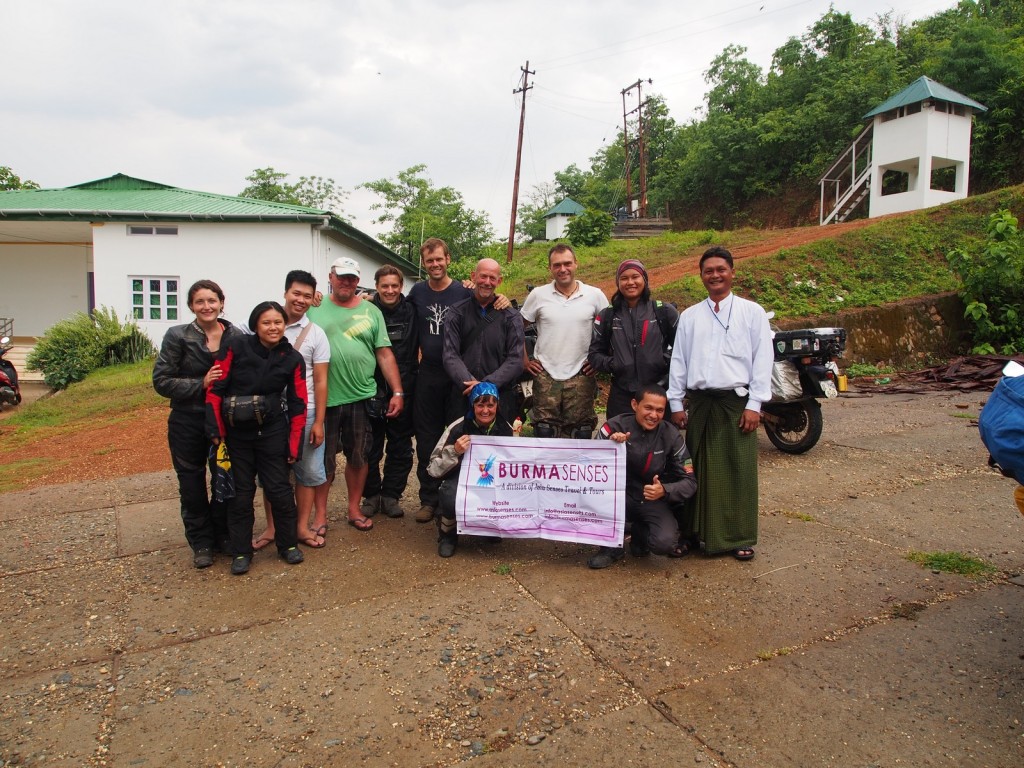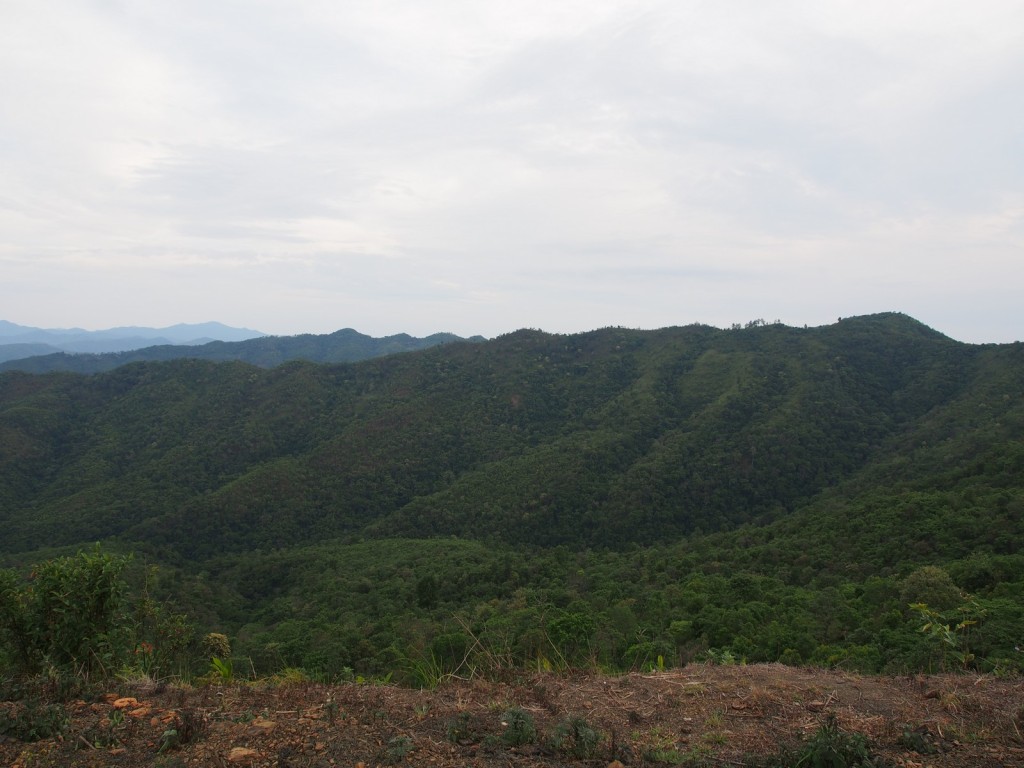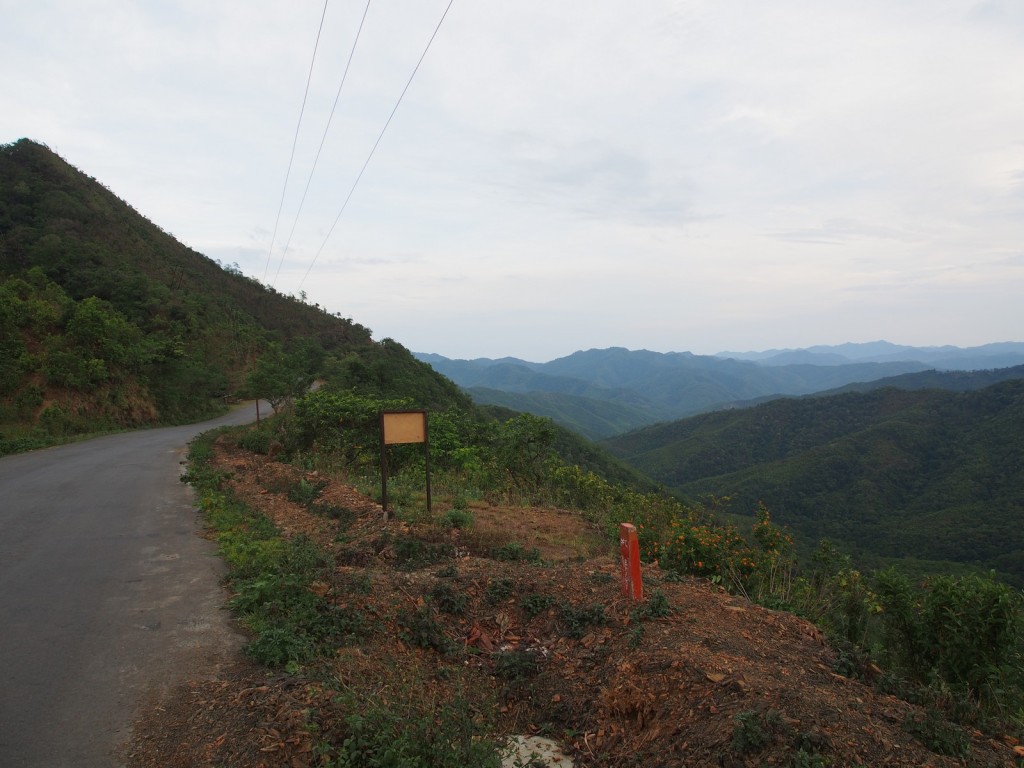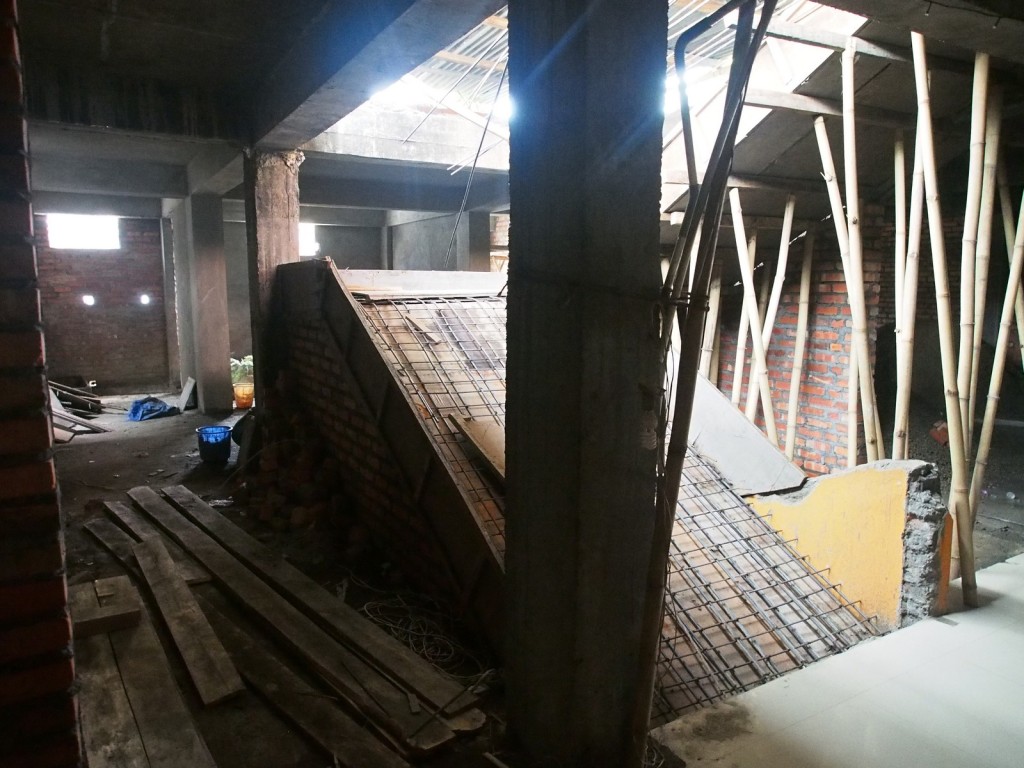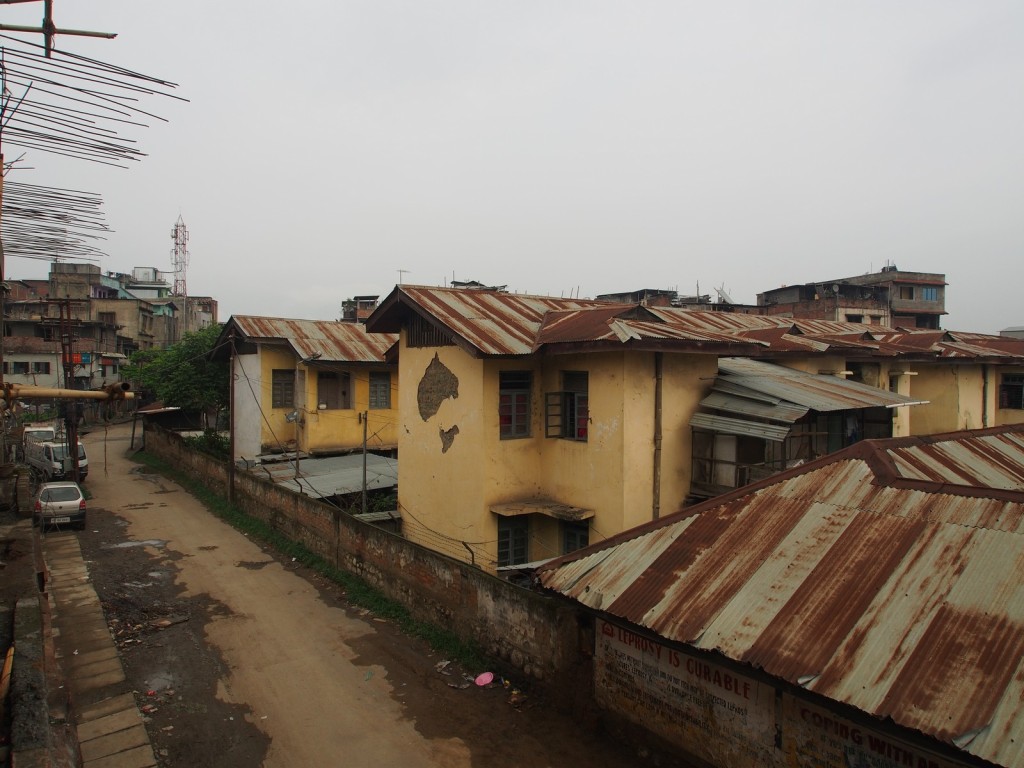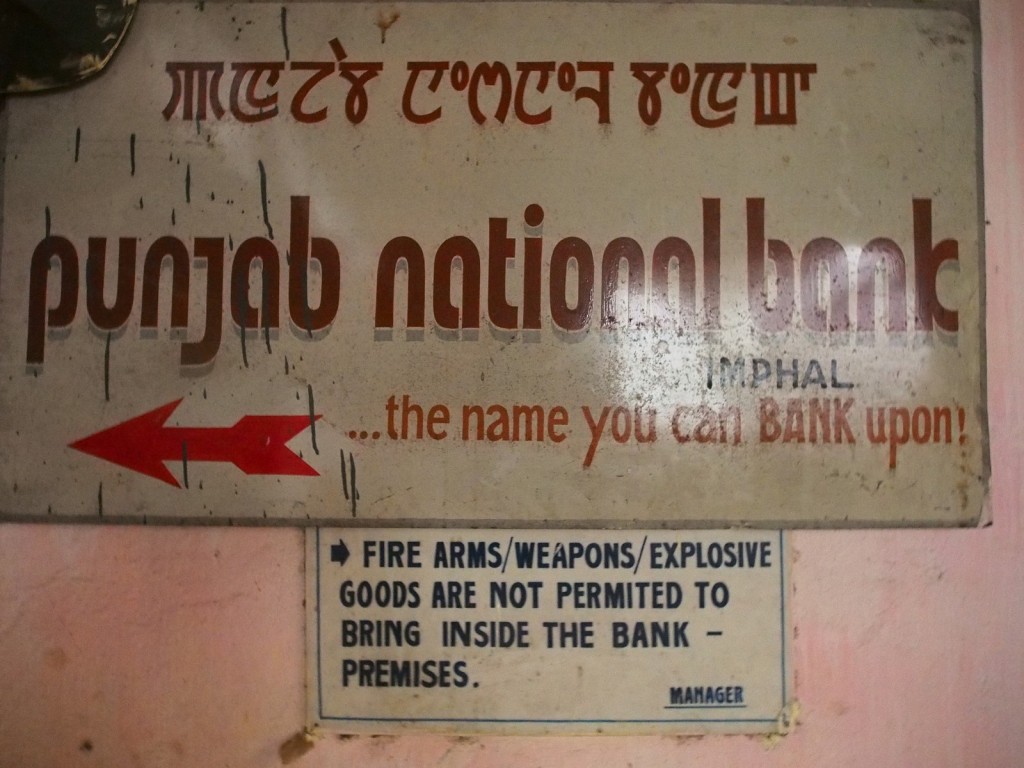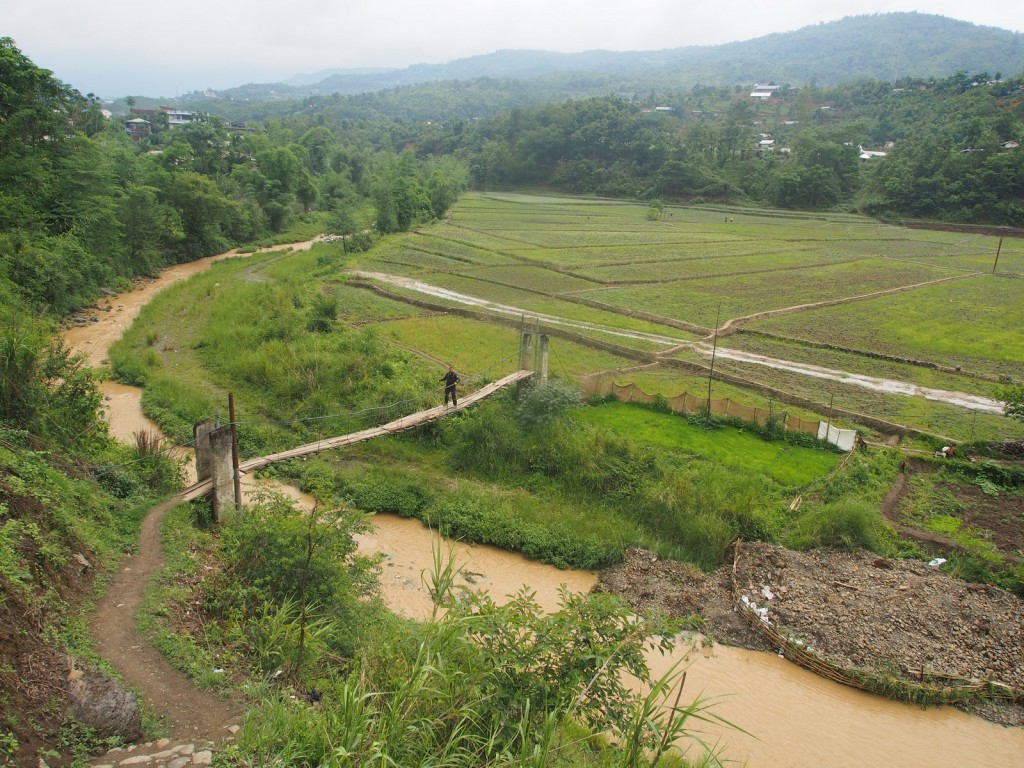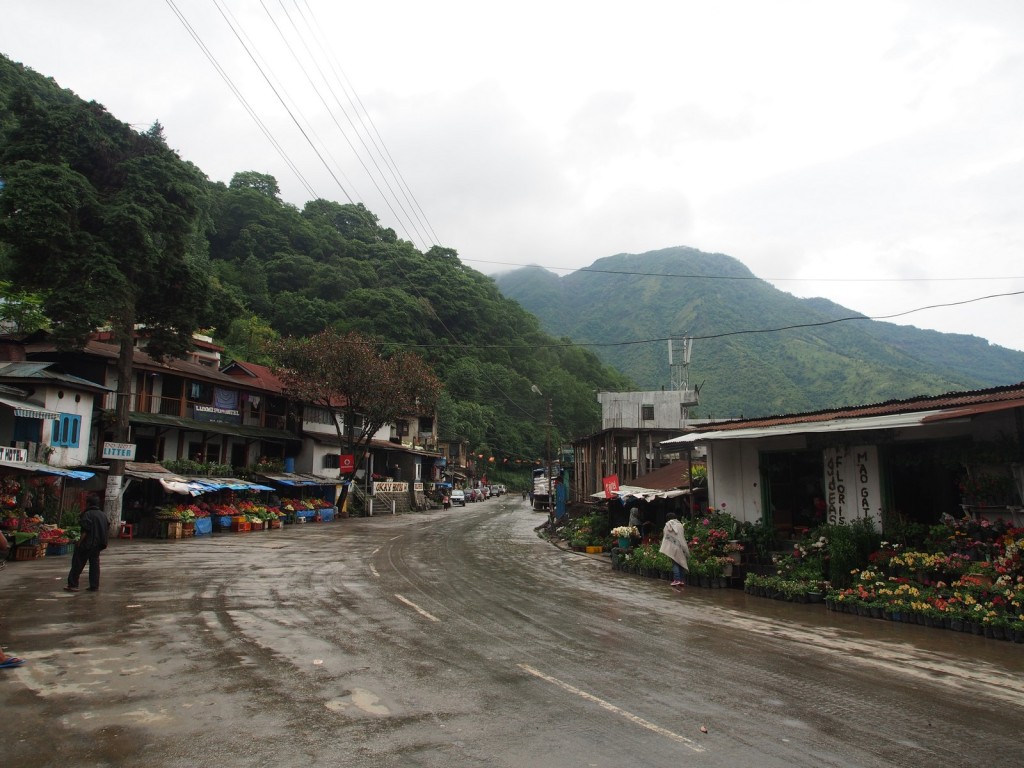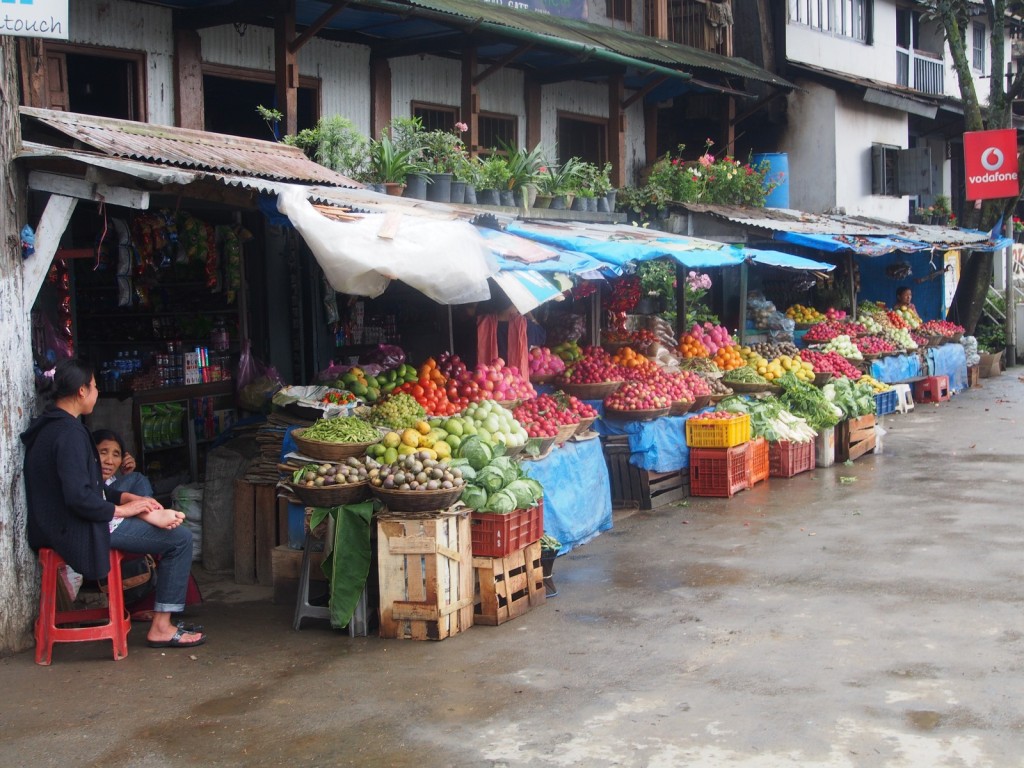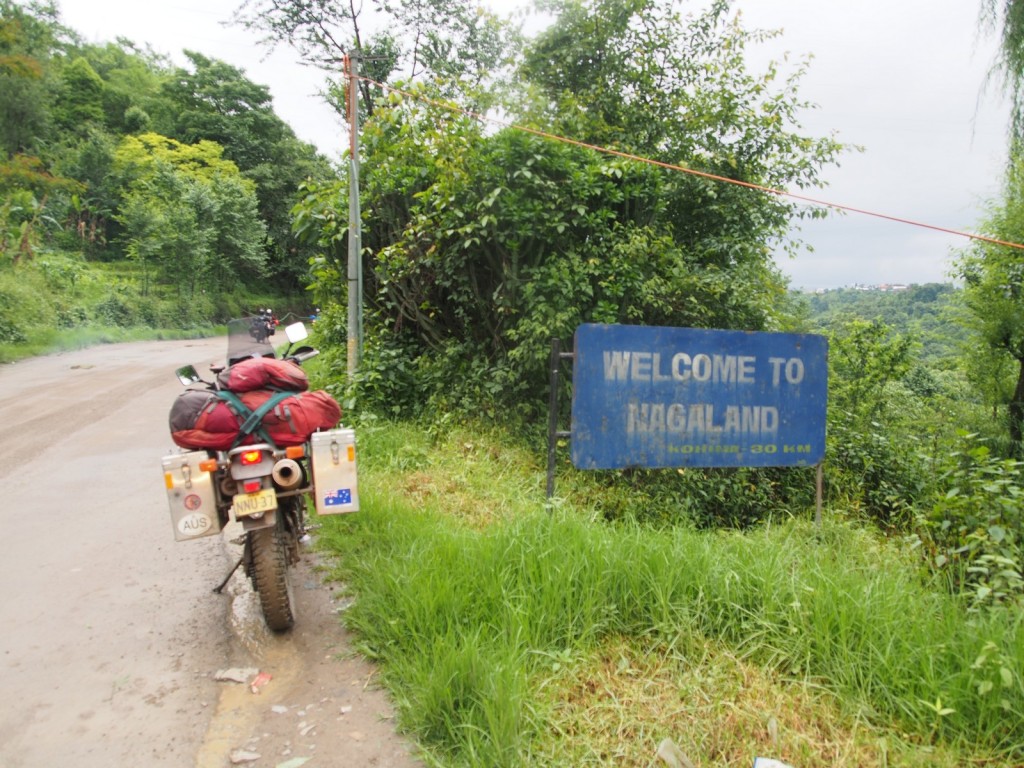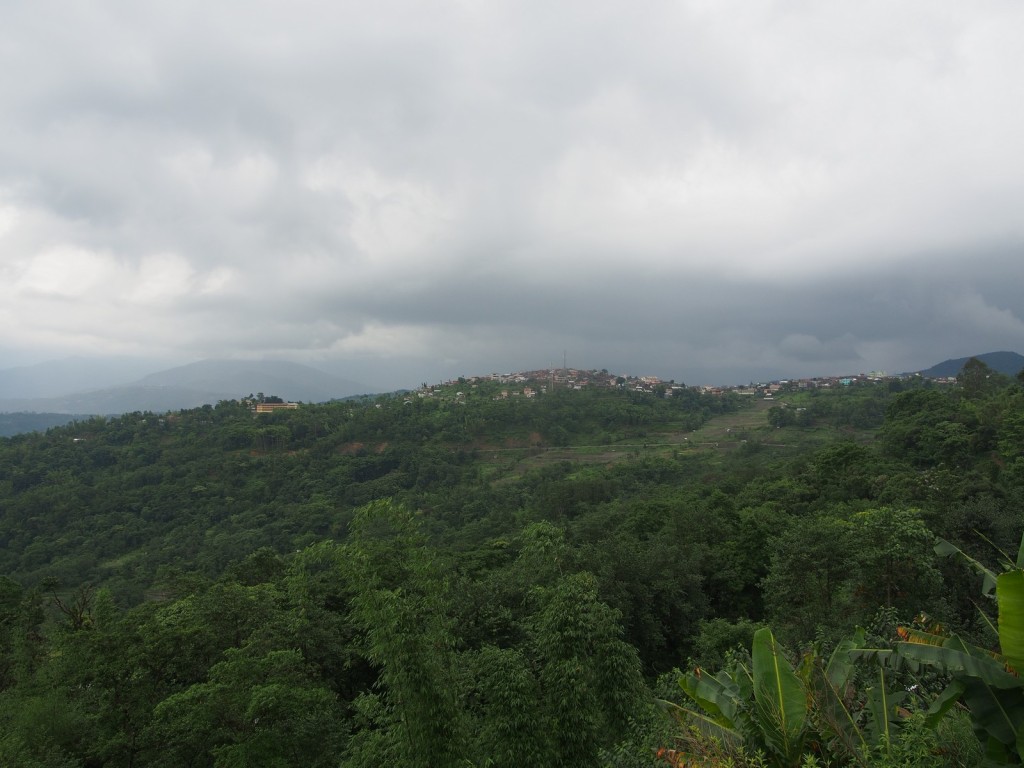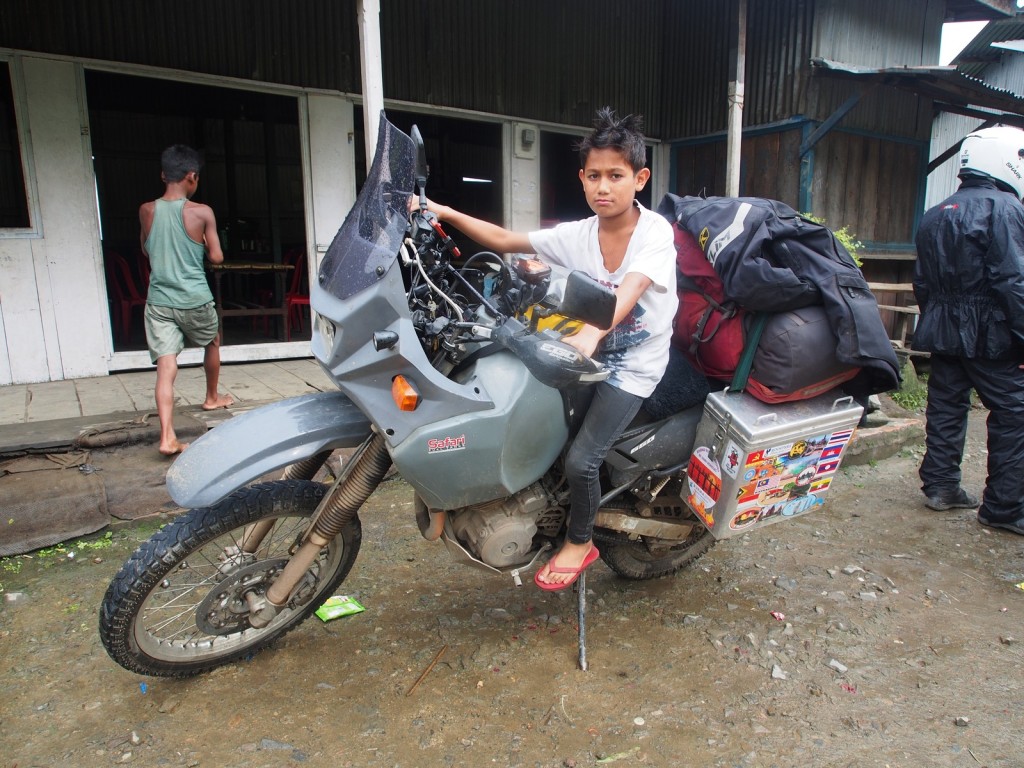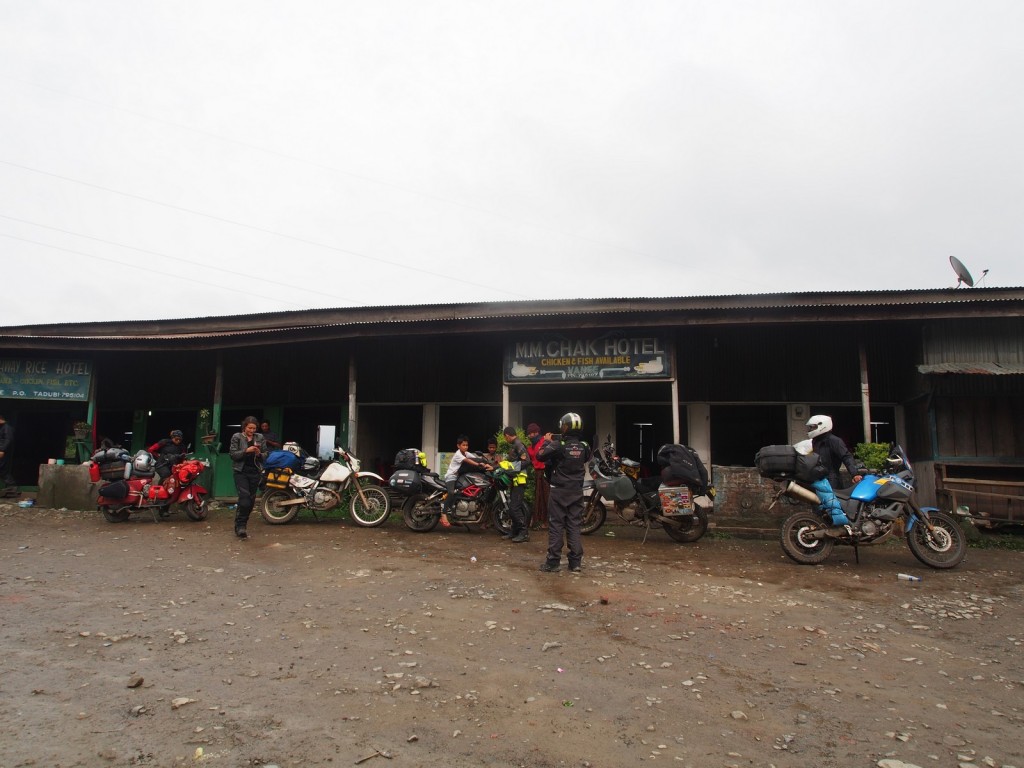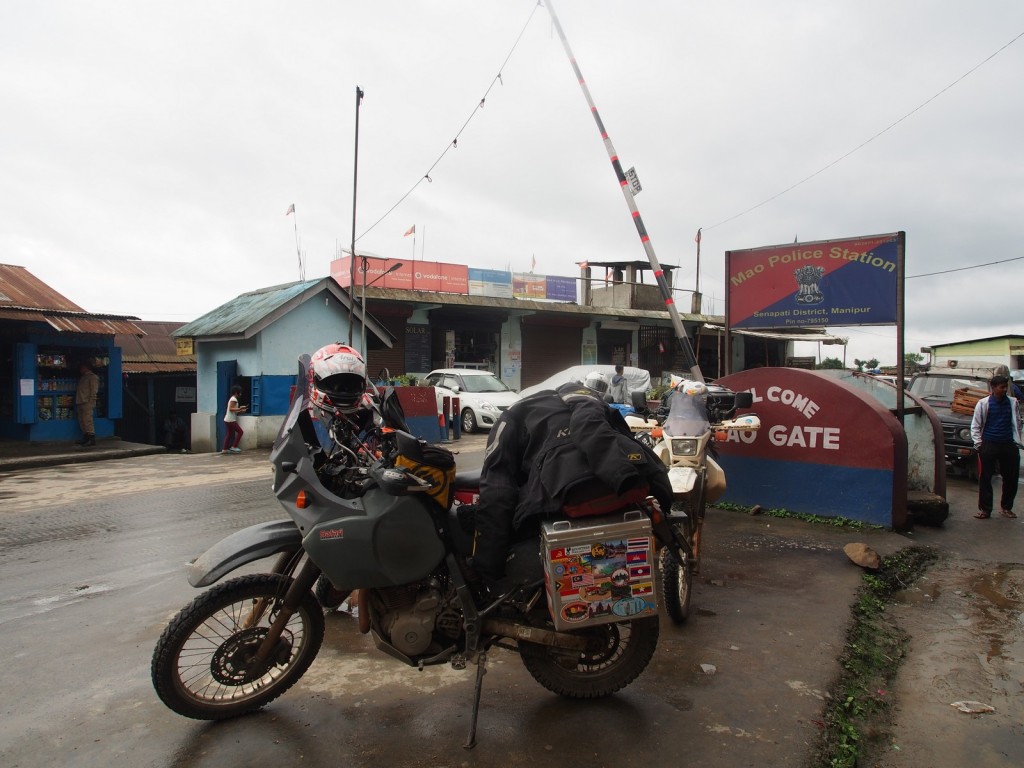After Bagan, we had a fairly short run to the storied city of Mandalay, so we took the opportunity to stop on the way and see a palm products shop. Here they produce everything from palm sugar sweets to palm oil whiskey. Firstly, the palm cane is crushed in a large, ox-driven mortar and pestle to extract the oil.
Inside they have the stills and the cooking stations.
One of the end products – and yes, it’s very potent and not at all a refined taste.
A very large proportion of the population chews betel nut, a mild natural stimulant. The downside to this is that it ruins and stains the teeth – both proprietors here showed long-term use.
Our next stop on the way was a small town at the base of Mount Popa, one of the largest mountains in central Myanmar. Volcanic activity has left a tall, sheer-faced column upon which is precipitously perched a monastery. Before visiting the monastery itself we stopped at a viewpoint just outside town.
On arrival at the base of the 777 steps to the top, you’re greeted by a horde of marauding monkeys, who will steal anything and everything that’s not nailed down – including snatching things straight out of your hands.
The climb is steep but the stairs are in good condition, and the view from the top is spectacular.
There are a number of shrines and statues at the top. Myanmar people love putting flashing LED lights on and around their Buddhas.
On the way back down this young girl spotted my camera and wanted to pose for me.
Arriving in Mandalay in the midday sun, we waited a few hours for the heat to subside – it was still almost 40 degrees outside, but at least it was on the right side of 40! We visited one of the workshops where votive gold leaf is still made the traditional way – manually. The casting machines can only create a moderately thin sheet, which needs to be beaten with a hammer against a piece of marble for five hours to flatten it out enough to be applied to statues in temples.
In Mandalay there are a large number of female monks, wearing striking pink robes instead of the traditional male orange or burgundy. They go door to door begging for alms twice a day, in the morning and before midday – they consume nothing but water after midday.
The biggest attraction in Mandalay is the Mahamuni Image, a large Buddha statue that is said to be a true representation of what Buddha looked like – it’s a copy of a statue made of Buddha when he visited Myanmar during his lifetime. The grounds and approach to the temple are covered in gold paint and gilding.
Once inside, all attention is on the Buddha image itself. Over a hundred years of pilgrims placing their sheets of gold leaf has resulted in a layer of solid gold literally 6 inches thick, in a strange pattern that makes the statue look almost diseased – except for the face, which is polished daily.
There’s also an interesting set of bronze statues that were plundered from Angkor Wat centuries ago. It’s good luck to rub them.
The most interesting thing in all these places, however, is people watching.
There are dozens of other things to see and do in Mandalay, and a lot of history, but sadly we only had a single day there and so missed out. The next town along is Monywa, again a fairly short riding day which is fortunate, with the heat peaking around 43 degrees. This hotel had a pool, which although quite warm in the sun, still made for a great way to relax and while away a few hours. At sunset, we jumped in the guide’s van and headed out to the world’s largest standing Buddha statue – 116 metres tall, with 31 floors inside to climb to the top (which we couldn’t, since it was already closed).
The next day was all riding – some 370 kilometres over rough, single lane mountain roads. With the Vespa in convoy, it was a very slow day.
Our final day in Myanmar was a short run to the border, followed by the usual paperwork and administration – getting the carnet for the bikes stamped out, followed by ourselves, and then reversing the process on the other side of the border. It was surprisingly trouble free, although quite slow on the Indian side.
Immediately after clearing the border, we started to have our “welcome to India” moments. 500 metres up the road from the border post was a military checkpoint, with half a dozen guards with Kalashnikovs stopping us and rechecking all the stamps and paperwork we had just processed. Fair enough, but this was repeated another two times in the next 20 kilometers, with varying levels of aggression or friendliness from the guards. We also had a big problem trying to change our leftover Kyat from Myanmar at the border town, with the end result being that one of our group had to duck back through the locals-only border illegally to change it.
Manipur is the state you enter on crossing from Myanmar, and while the whole north-eastern region is quite different from the rest of India, it was still immediately apparent that the culture was very different – we had clearly now left south-east Asia. From the border town, you cross a rugged mountain range on an incredibly windy road, with beautiful views over pristine forests.
Arriving in the state capital Imphal after dark, we were very unimpressed by the place. Traffic is as suicidal as its reputation, it seemed dirty and rundown, and we generally didn’t feel that safe (particularly after seeing literally hundreds of soldiers on the roads in) – although arriving at night always makes things seem worse. The hotel also left a lot to be desired – still under construction, with a great view out the window, and distinctly unfriendly staff.
We had left our bikes outside reluctantly, having locked them to street furniture, but when we came out in the morning there were two police with Kalashnikovs within 10 metres – it appears we had chosen a hotel right next to the biggest bank in town, which has 24 hour armed police on site, metal detectors and pat-downs at the entrance: they were probably safer there than in a normal hotel car park!
Borrowing the reception’s newspaper that morning, we discovered why there was so heavy a police and military presence: 18 soldiers had been killed in an insurgent ambush last week, and a cross-border Army raid into Myanmar yesterday killed around 50 separatists in retaliation. This area is the Wild Wild East of India! Rather than taking our planned rest day here, we hit the road with about half of our group from the Myanmar crossing, heading north into the next state, Nagaland. It’s famous for being home to head-hunting hill tribes, with the last recorded case being as recent as 1963. The road north was another winding mountain road, with rough potholed sections, mud and stones washed over the road, and neck-snapping views over deep valleys, hilltop villages and rice paddies.
The locals proved much friendlier once away from the big city, such as these kids who helped serve us lunch at their father’s restaurant.
More checkpoints (this one at the state border), but being manned by disinterested police instead of the Army.
We’ve found a hotel in Kohima, the state capital, where we’ll probably take a rest day tomorrow – it’s been a long past fortnight without much of a break, and both of us seem to be coming down with colds.

